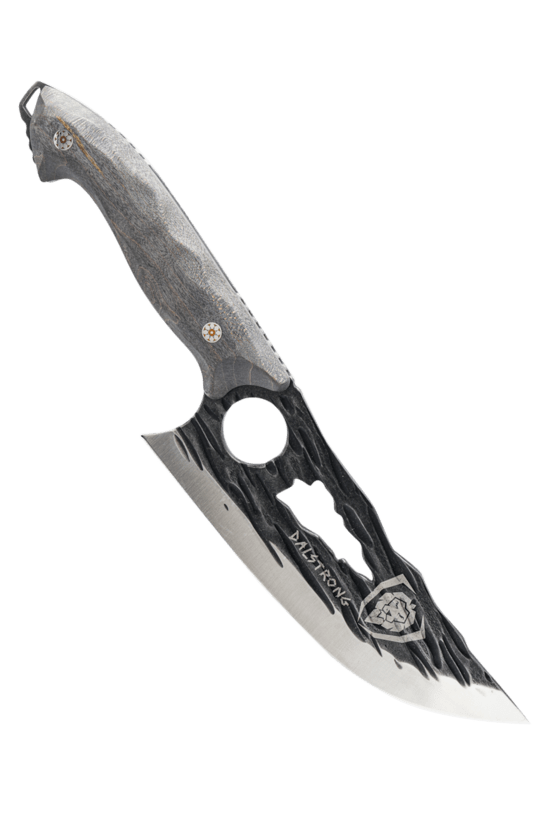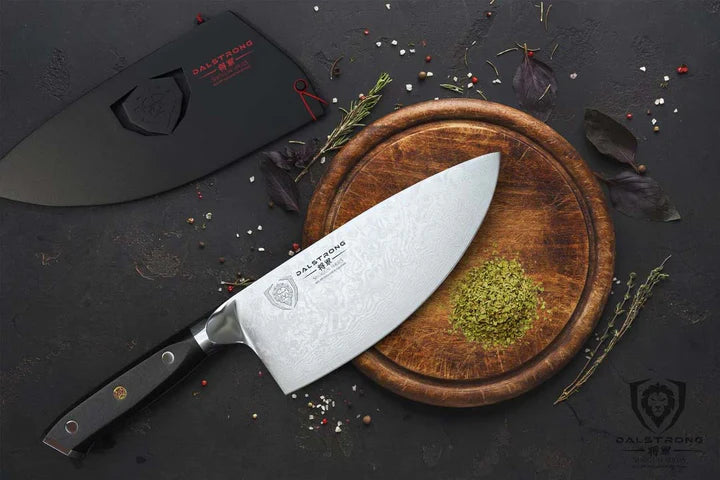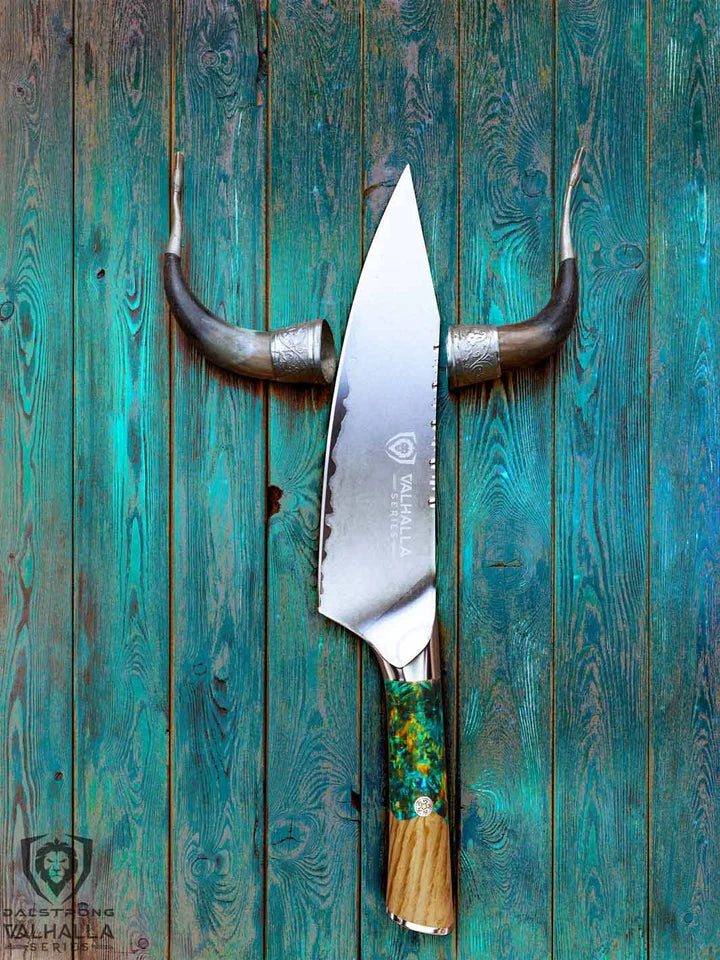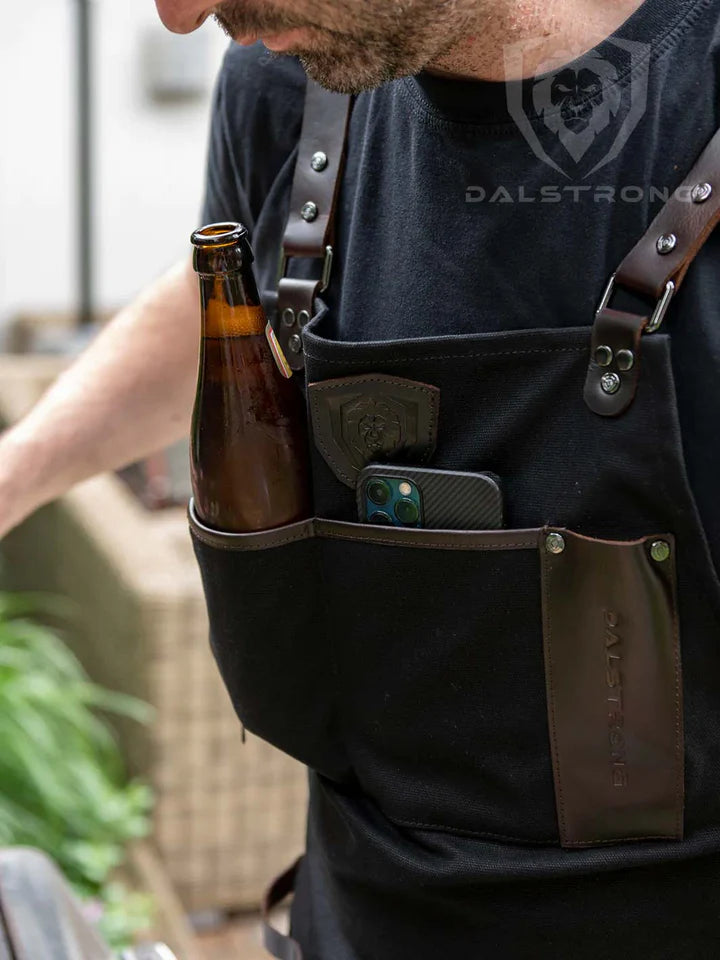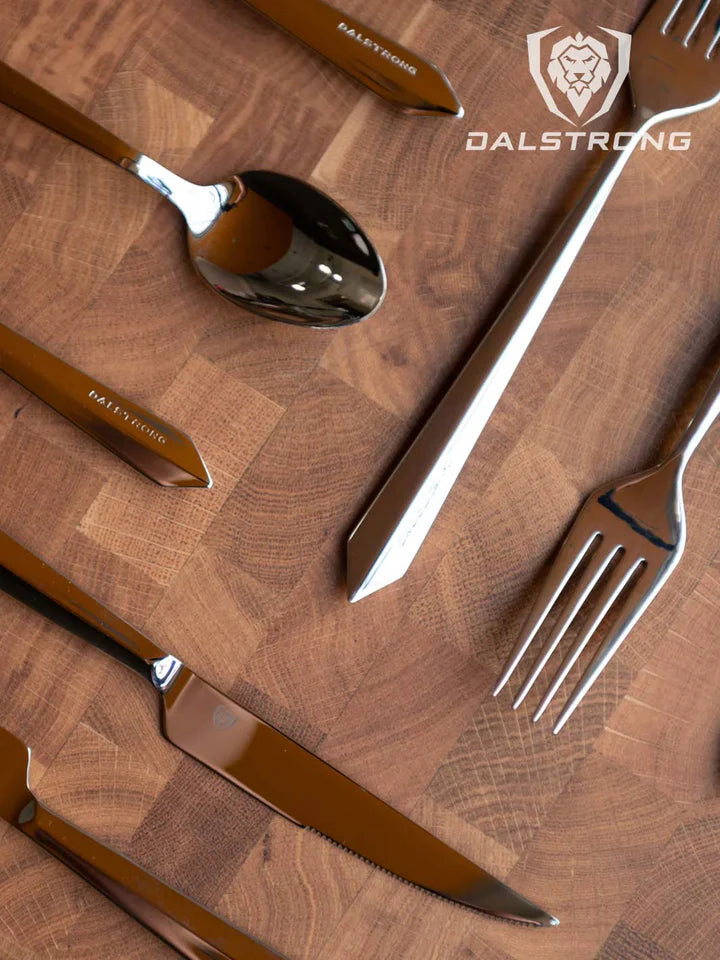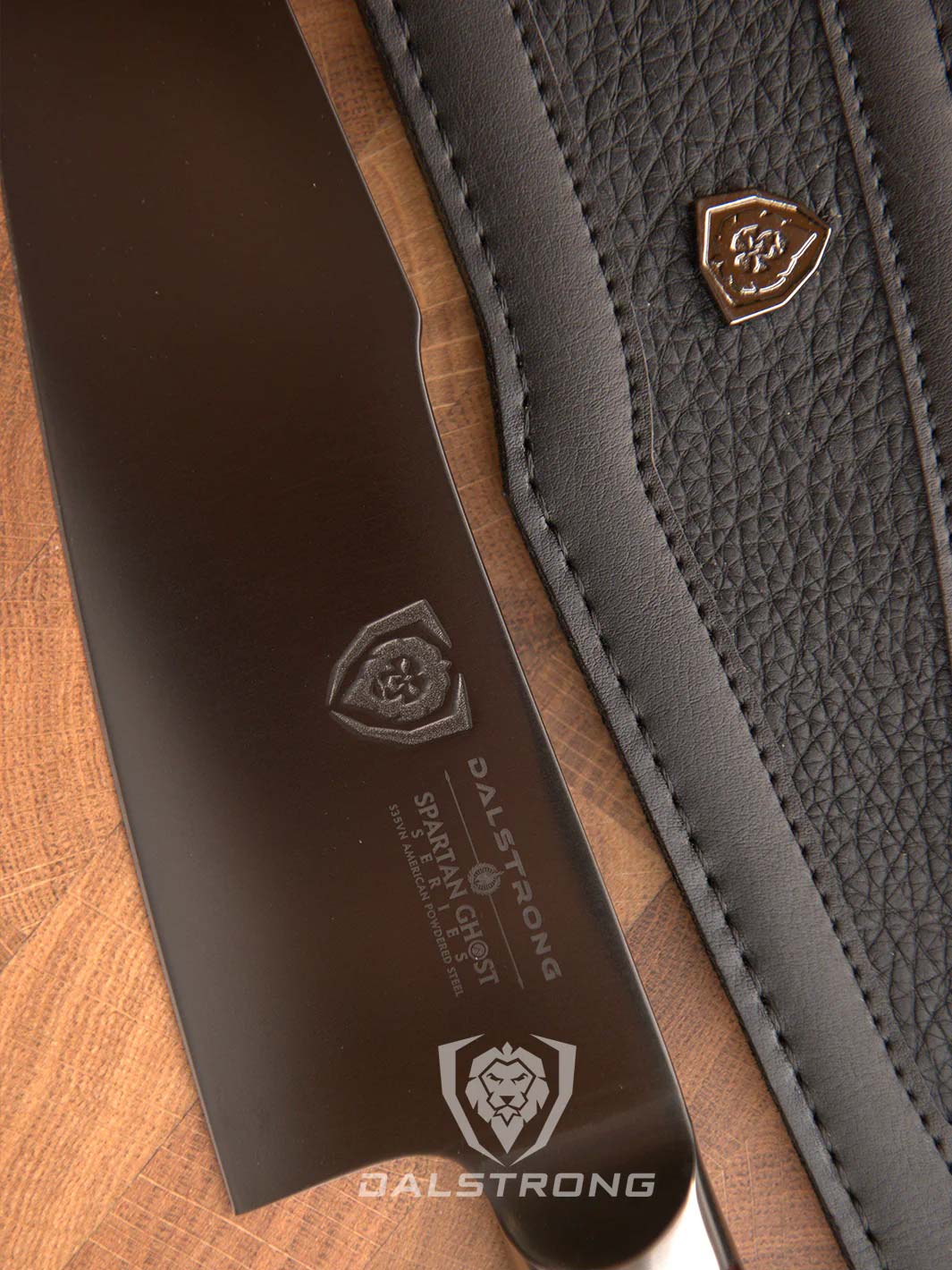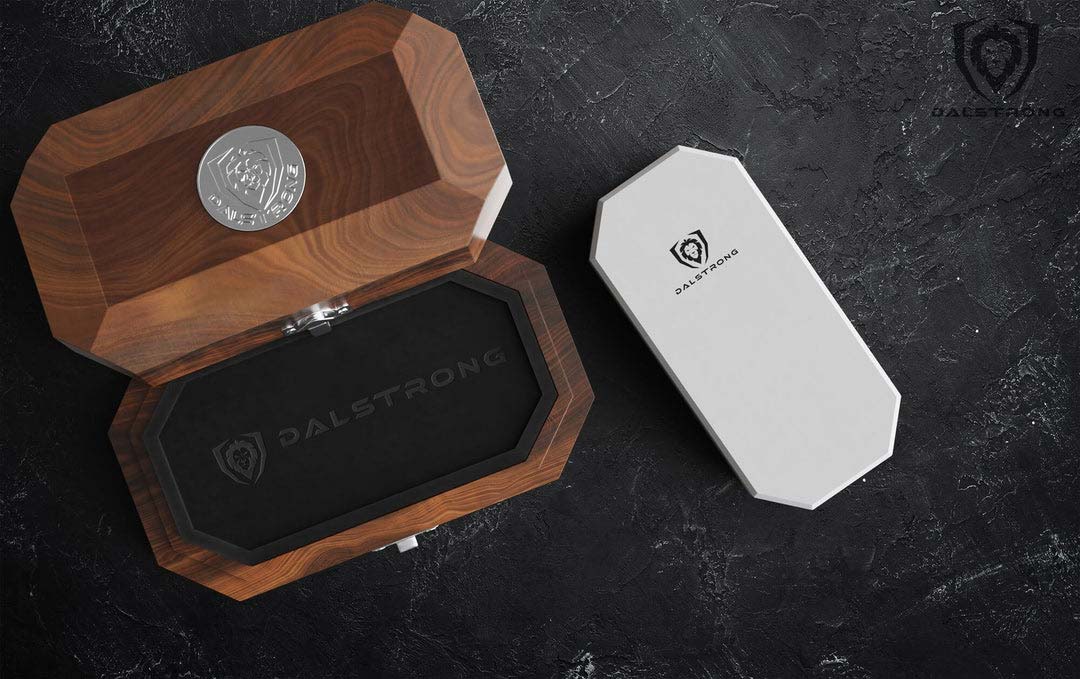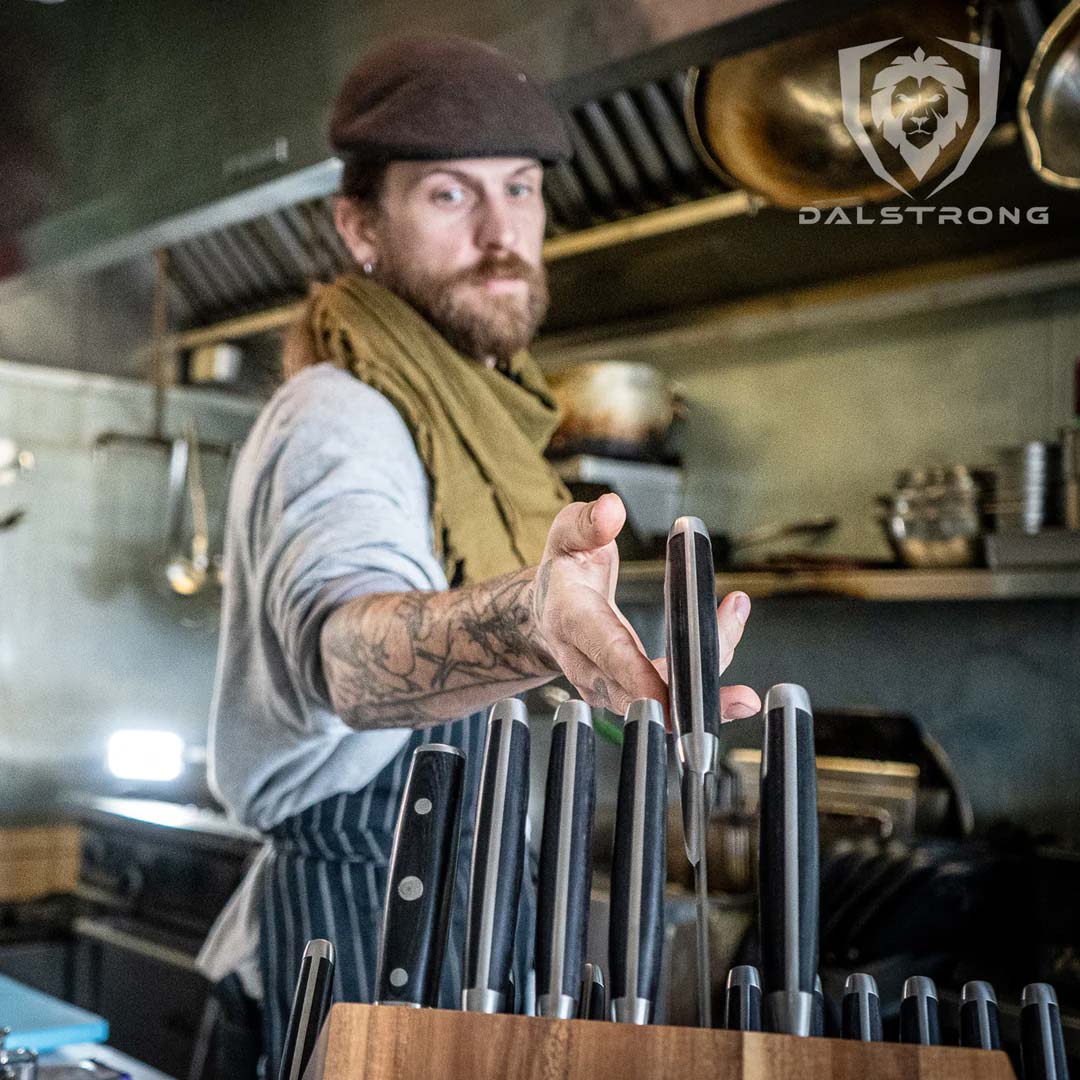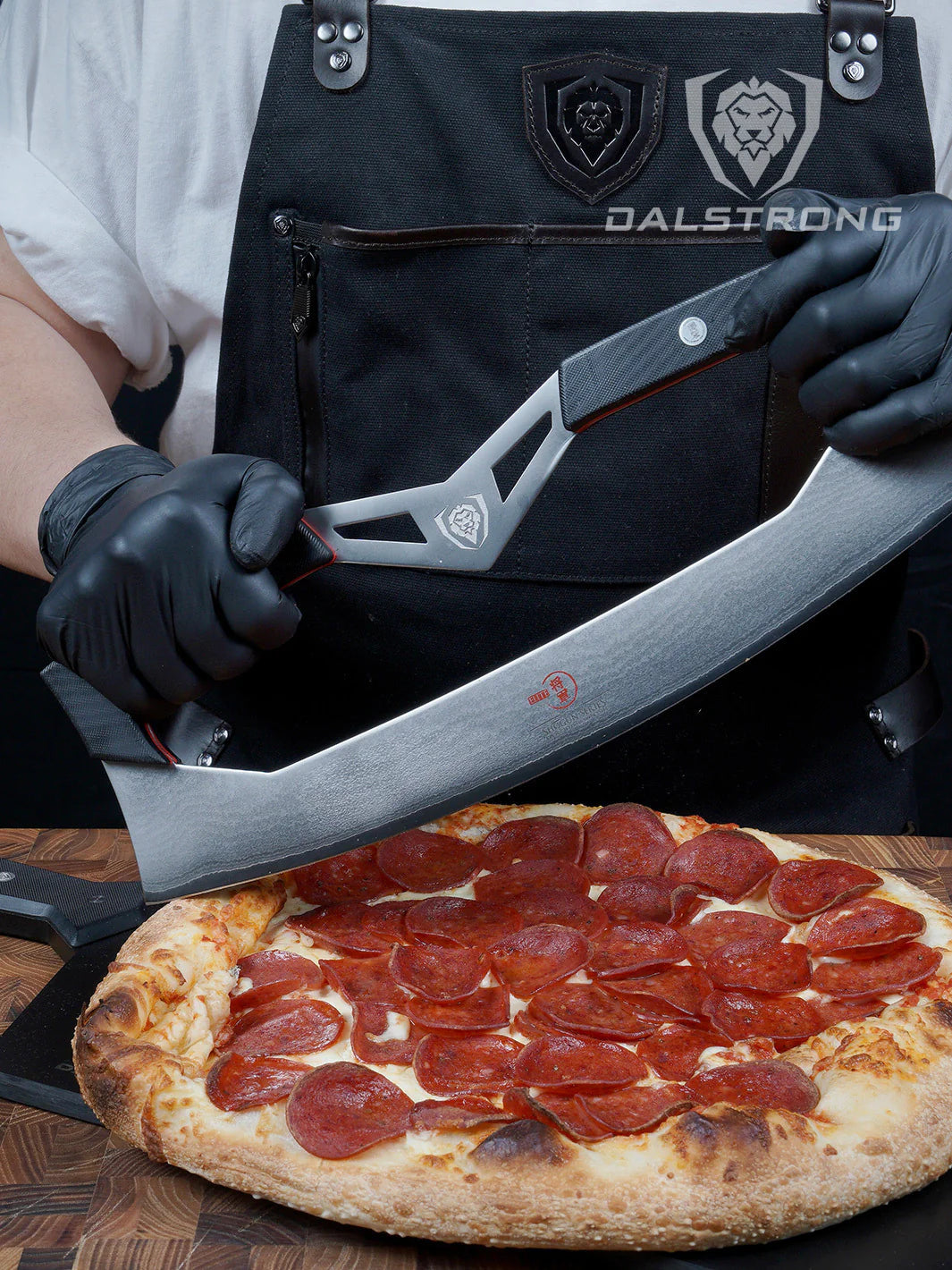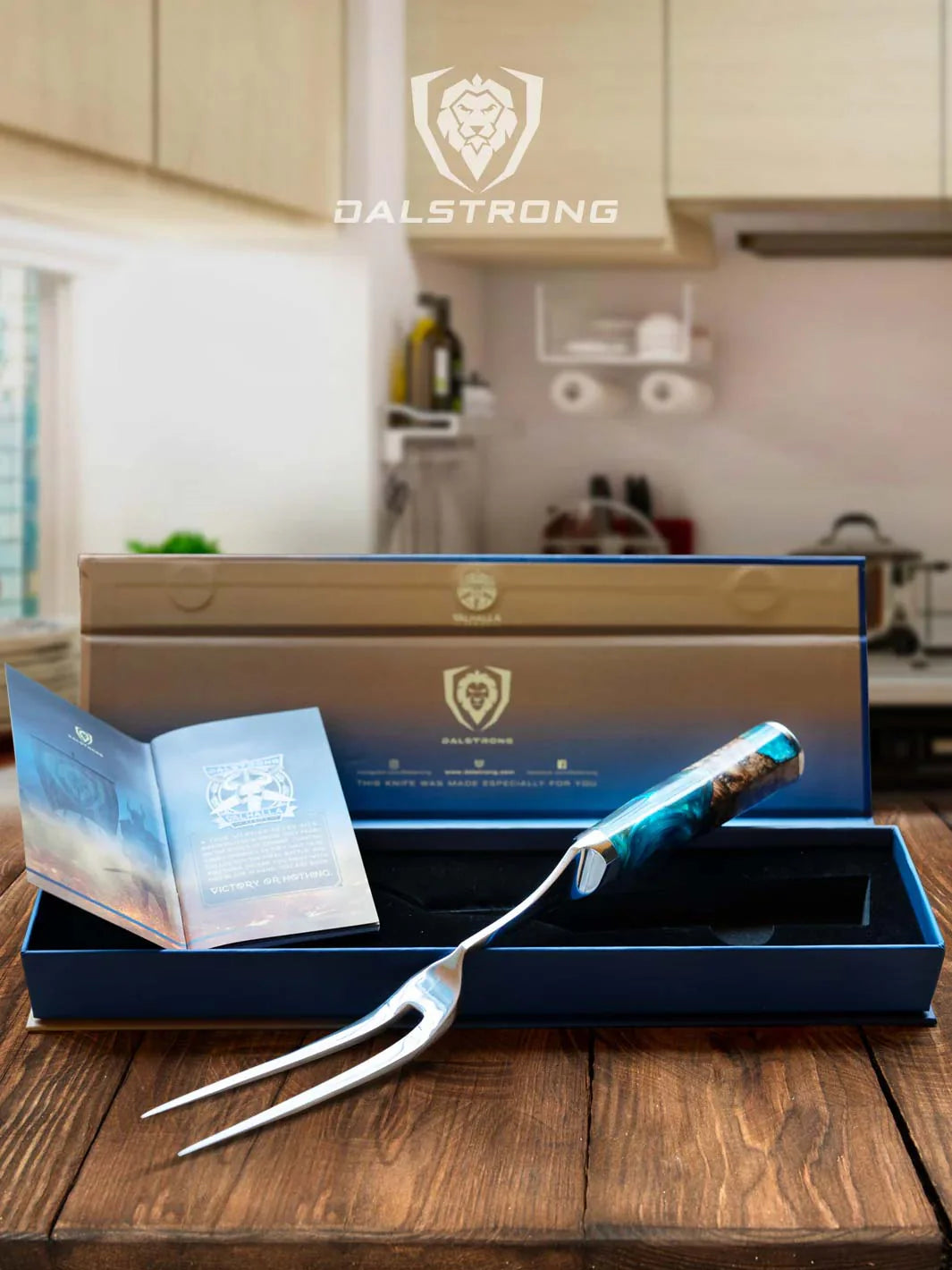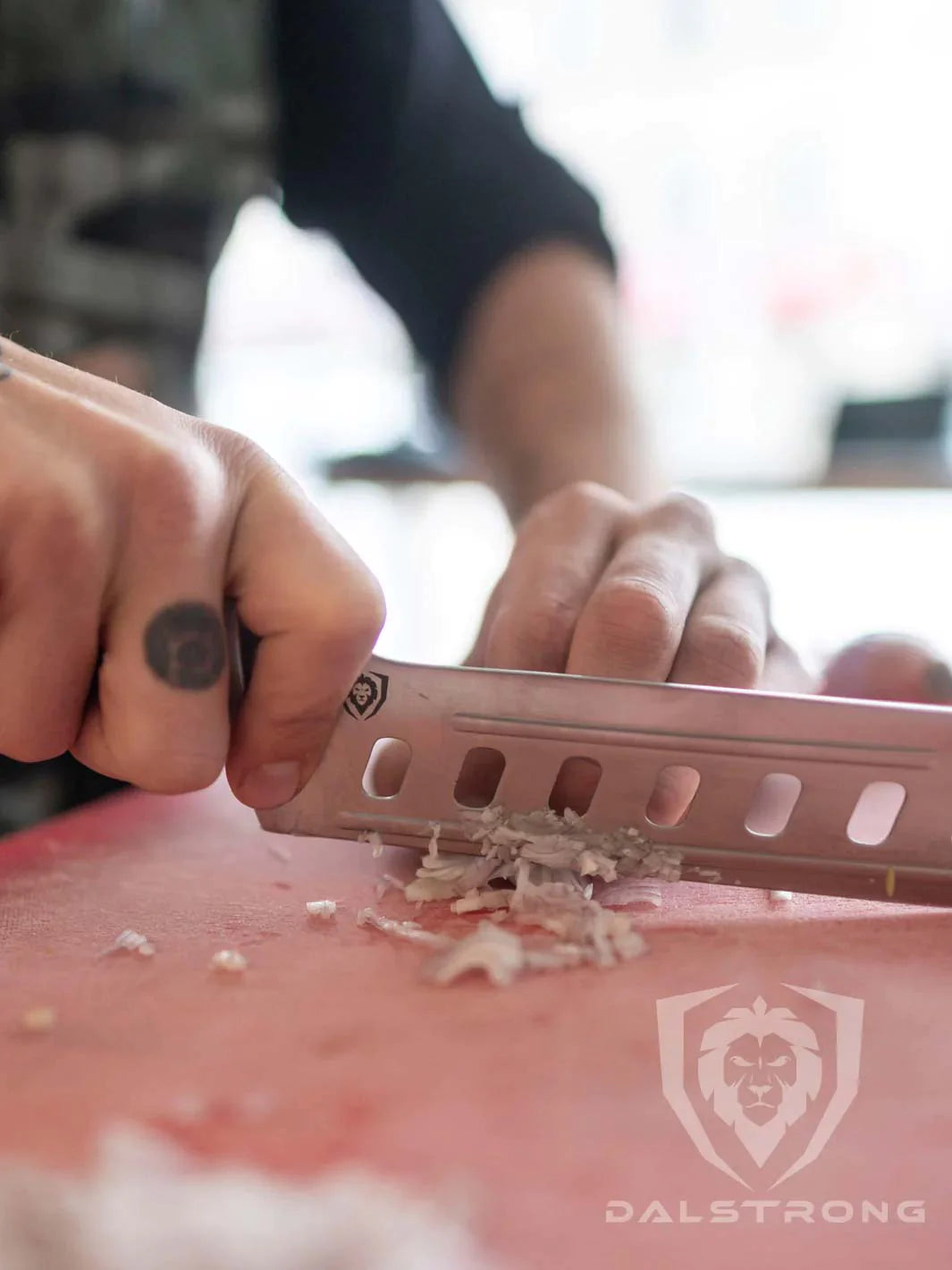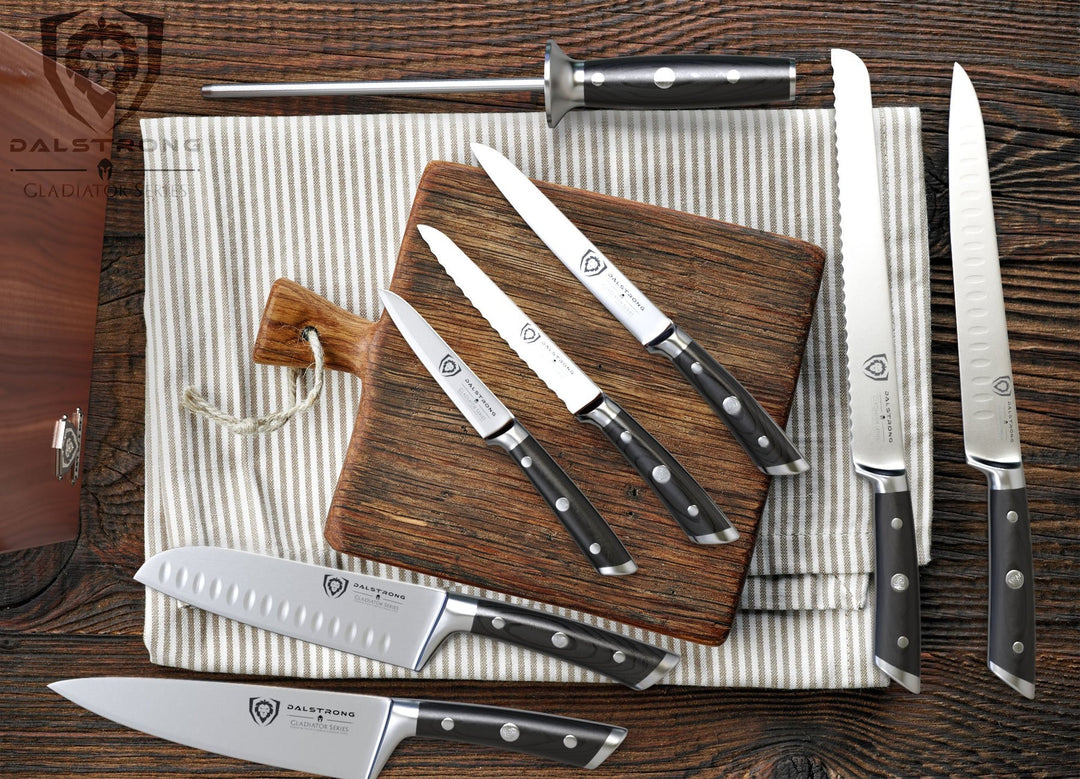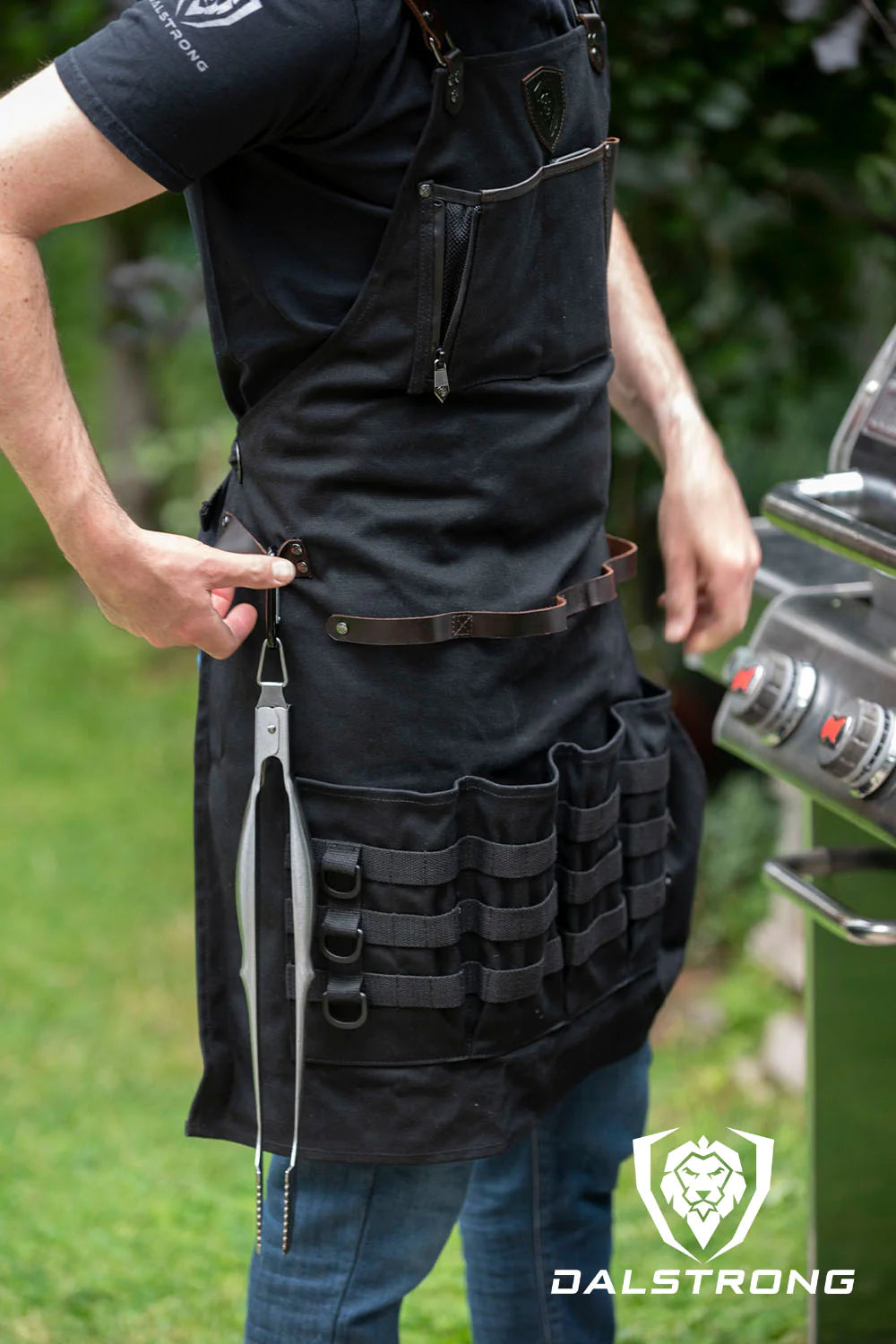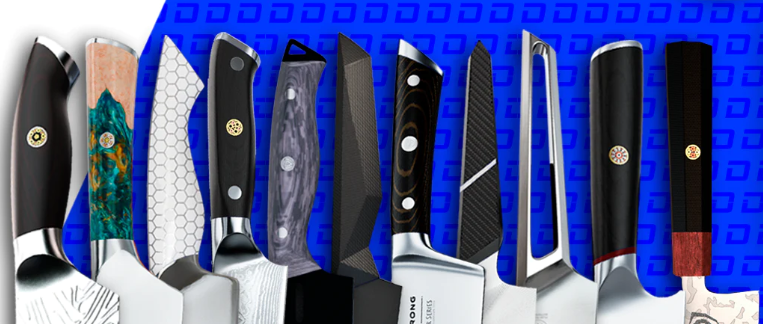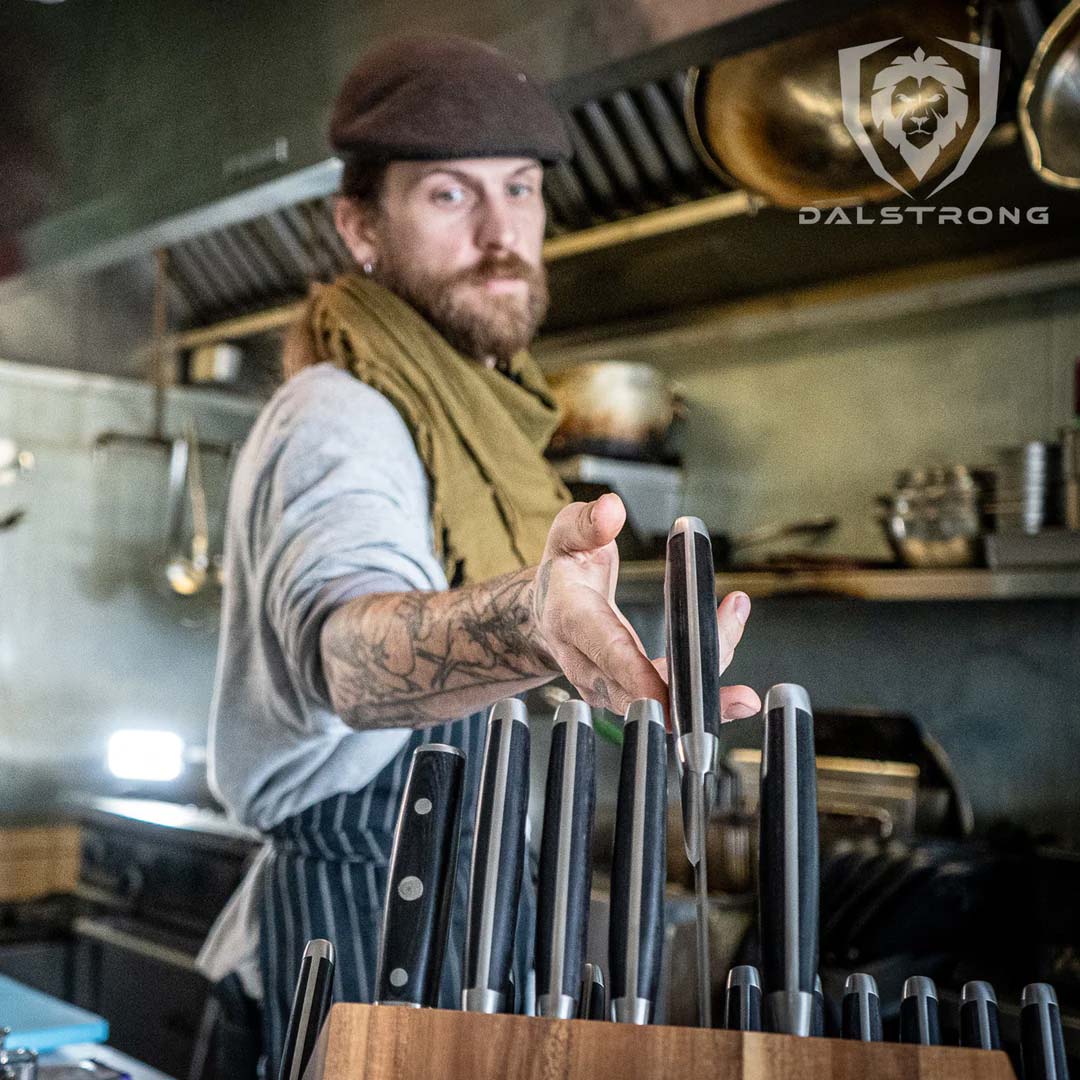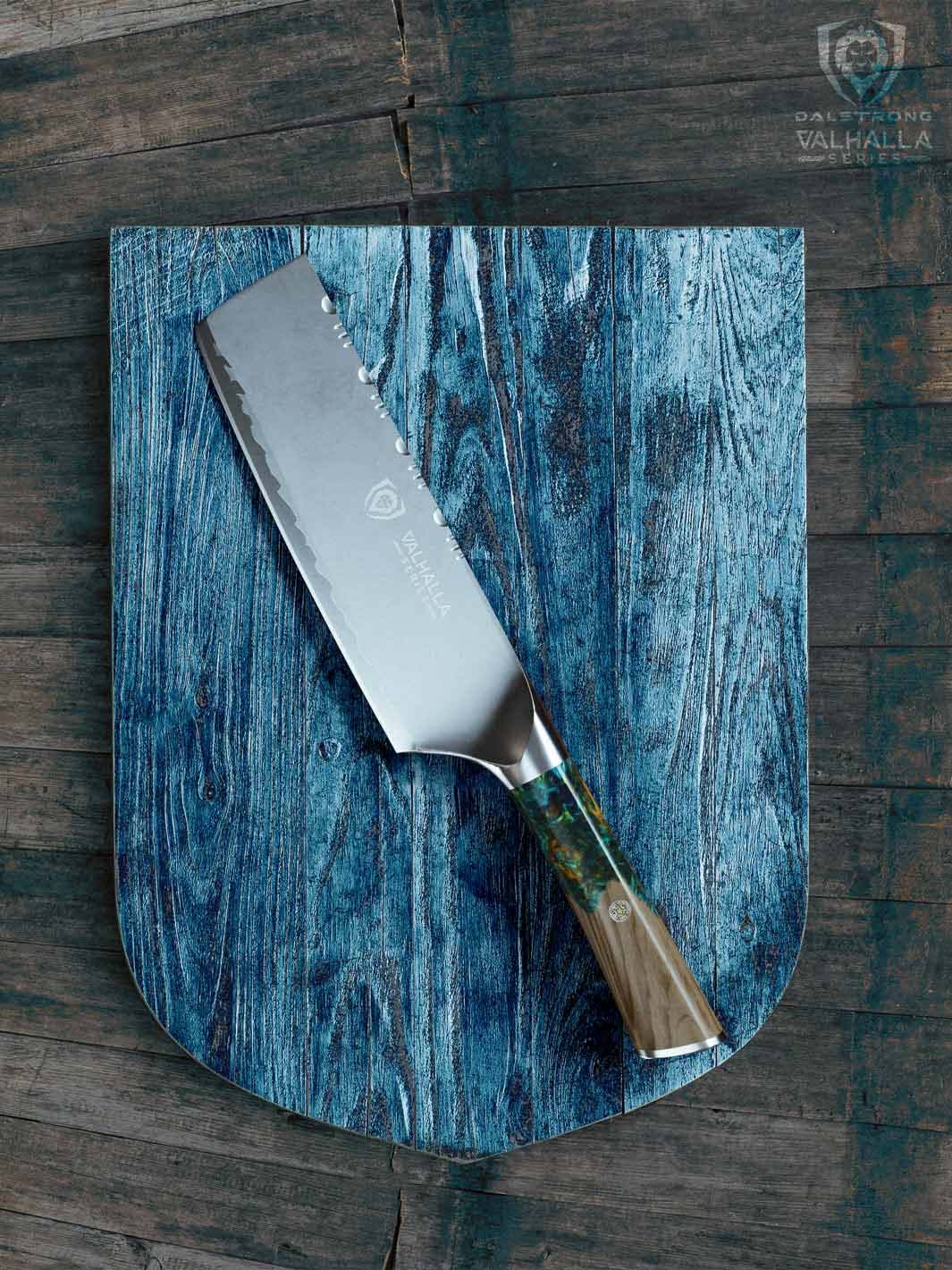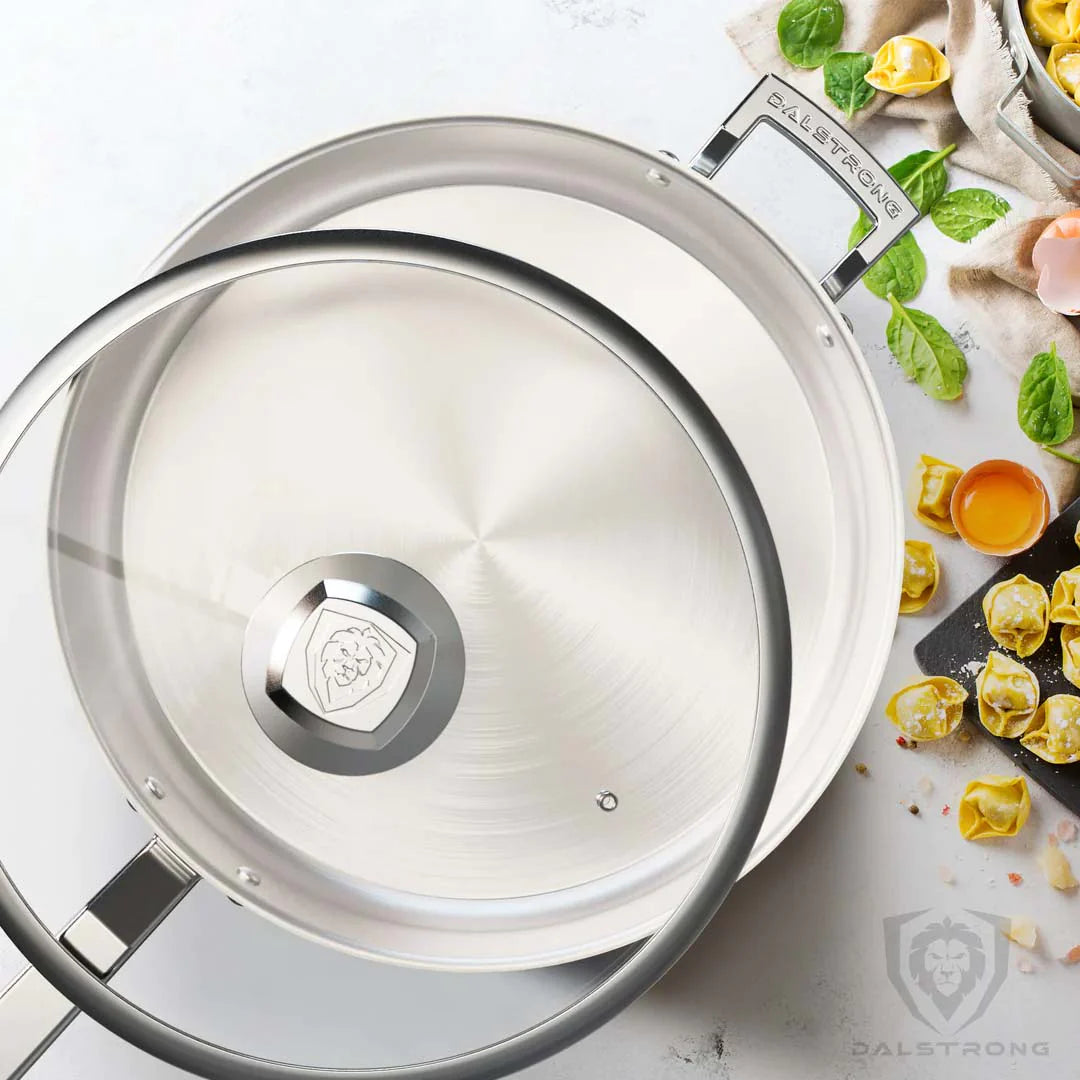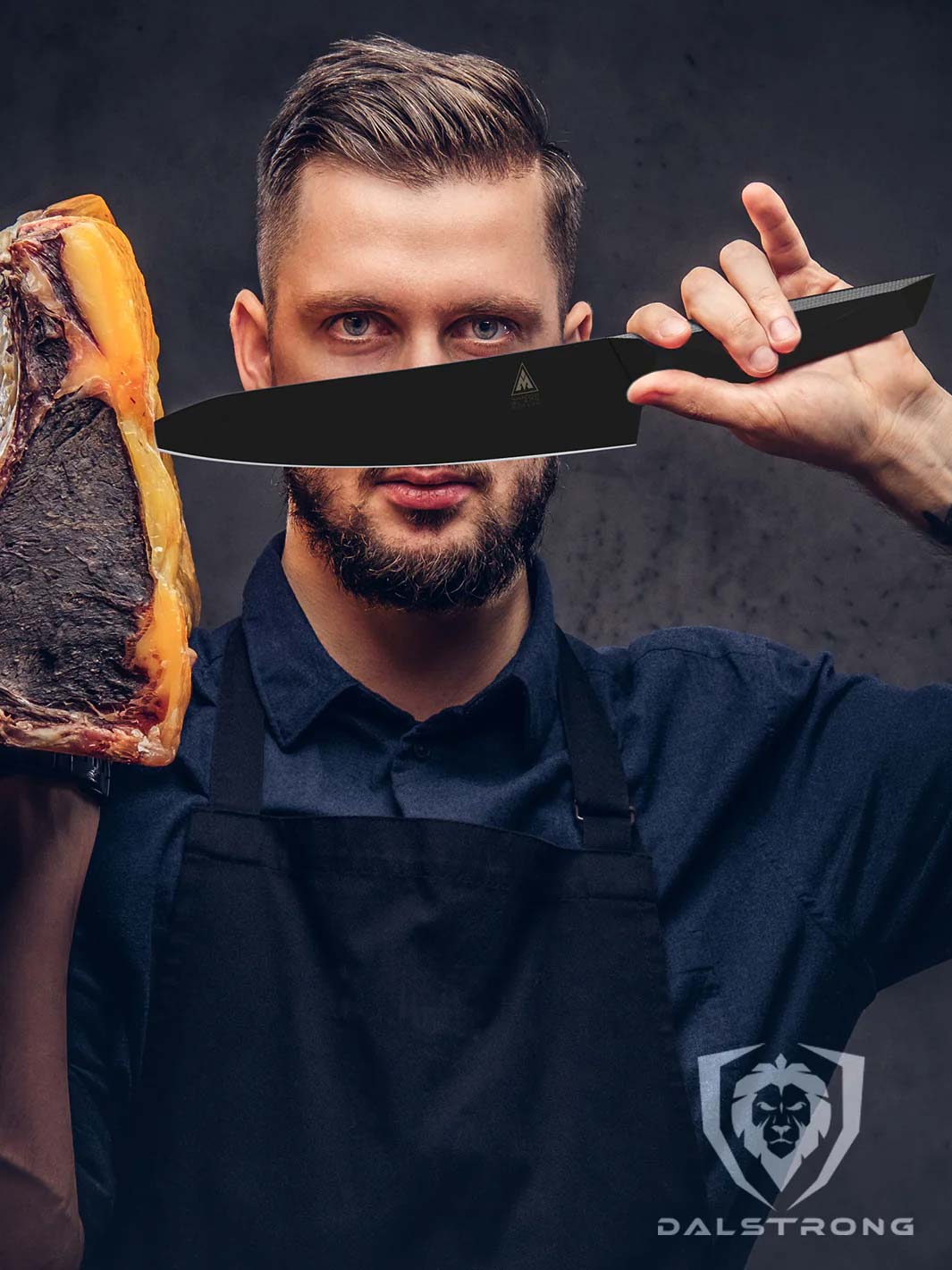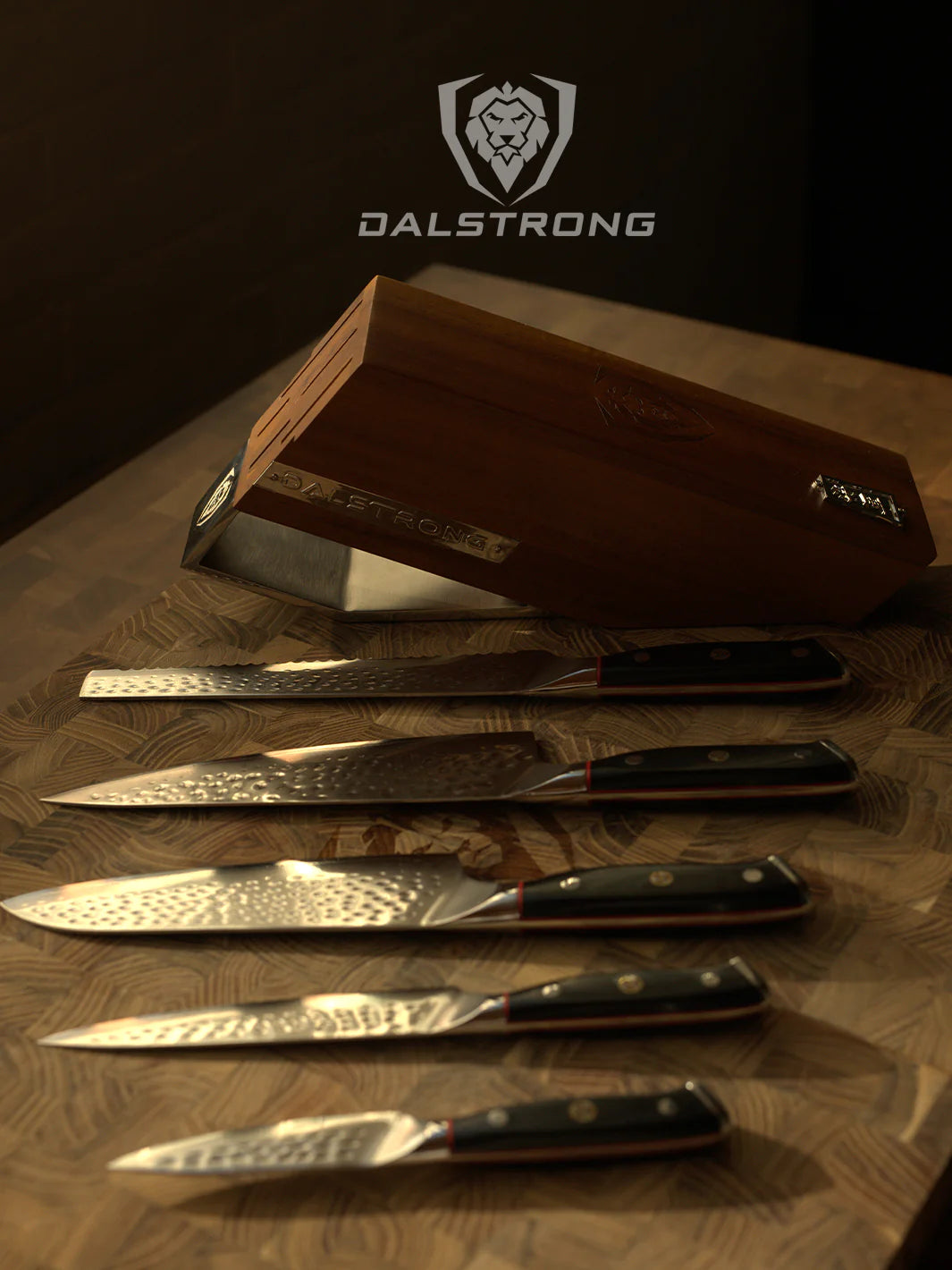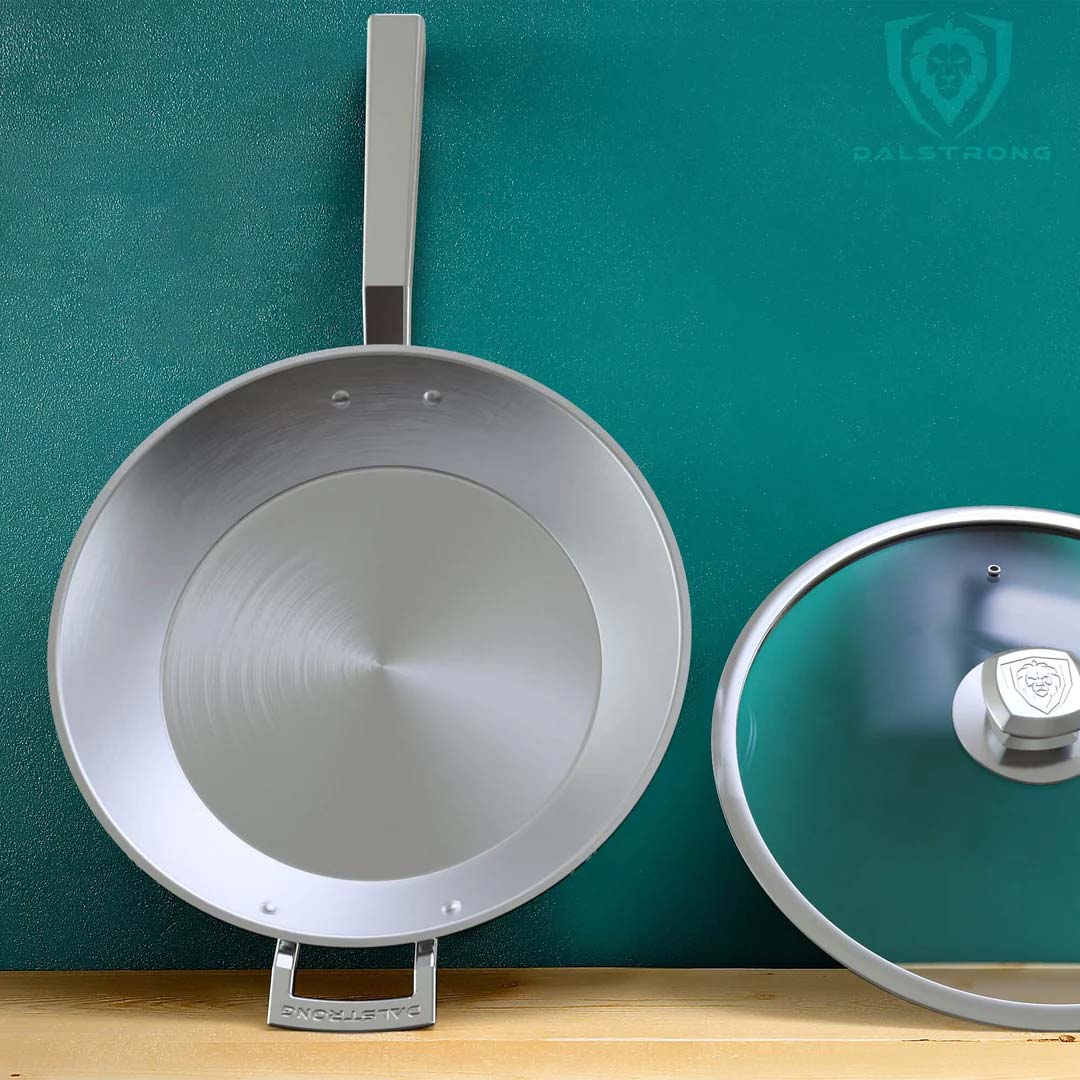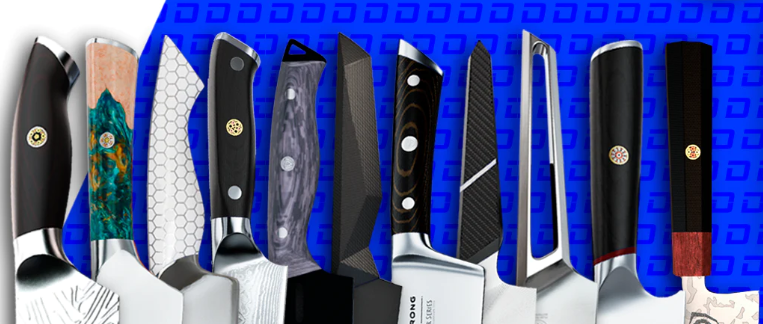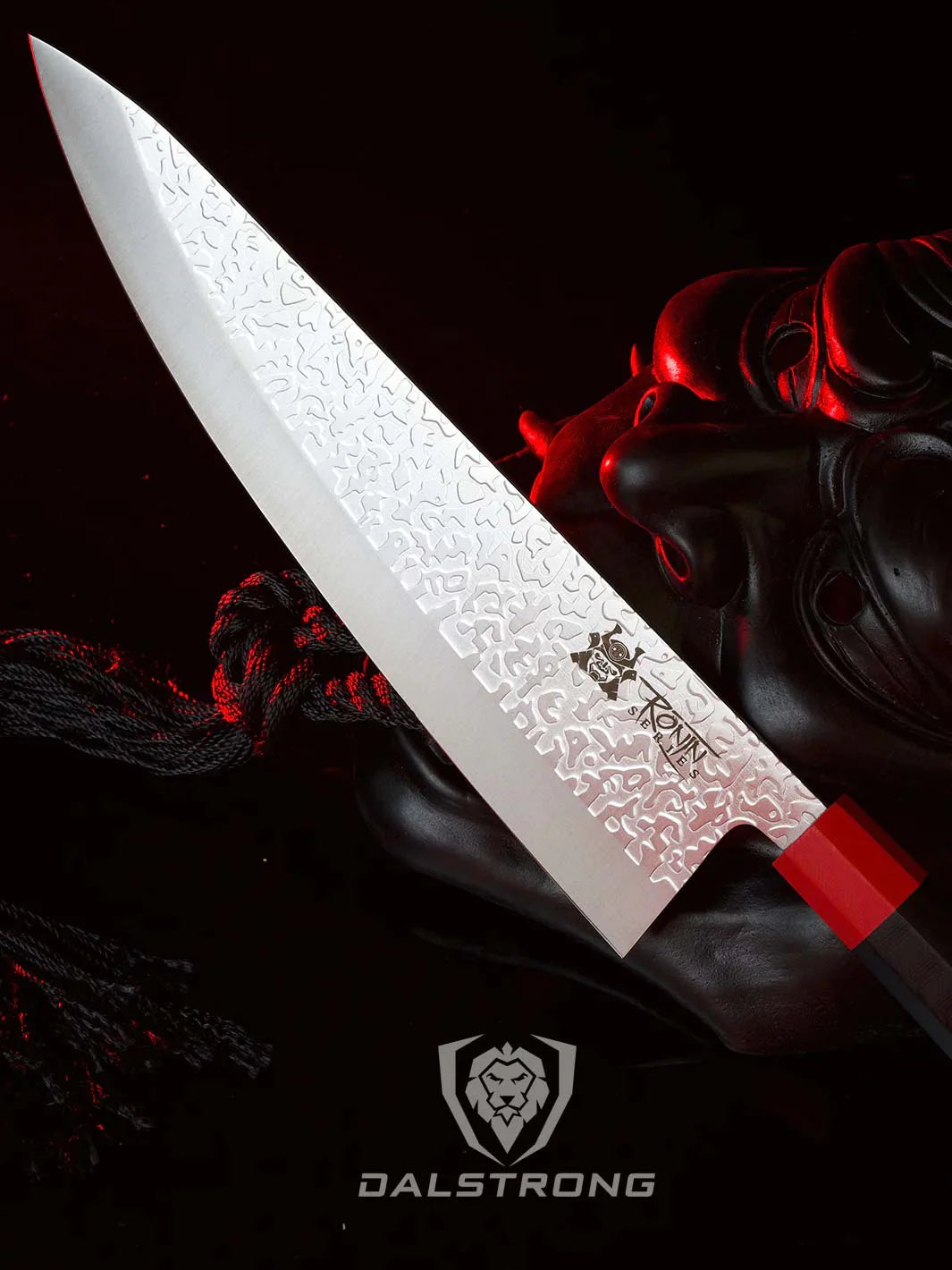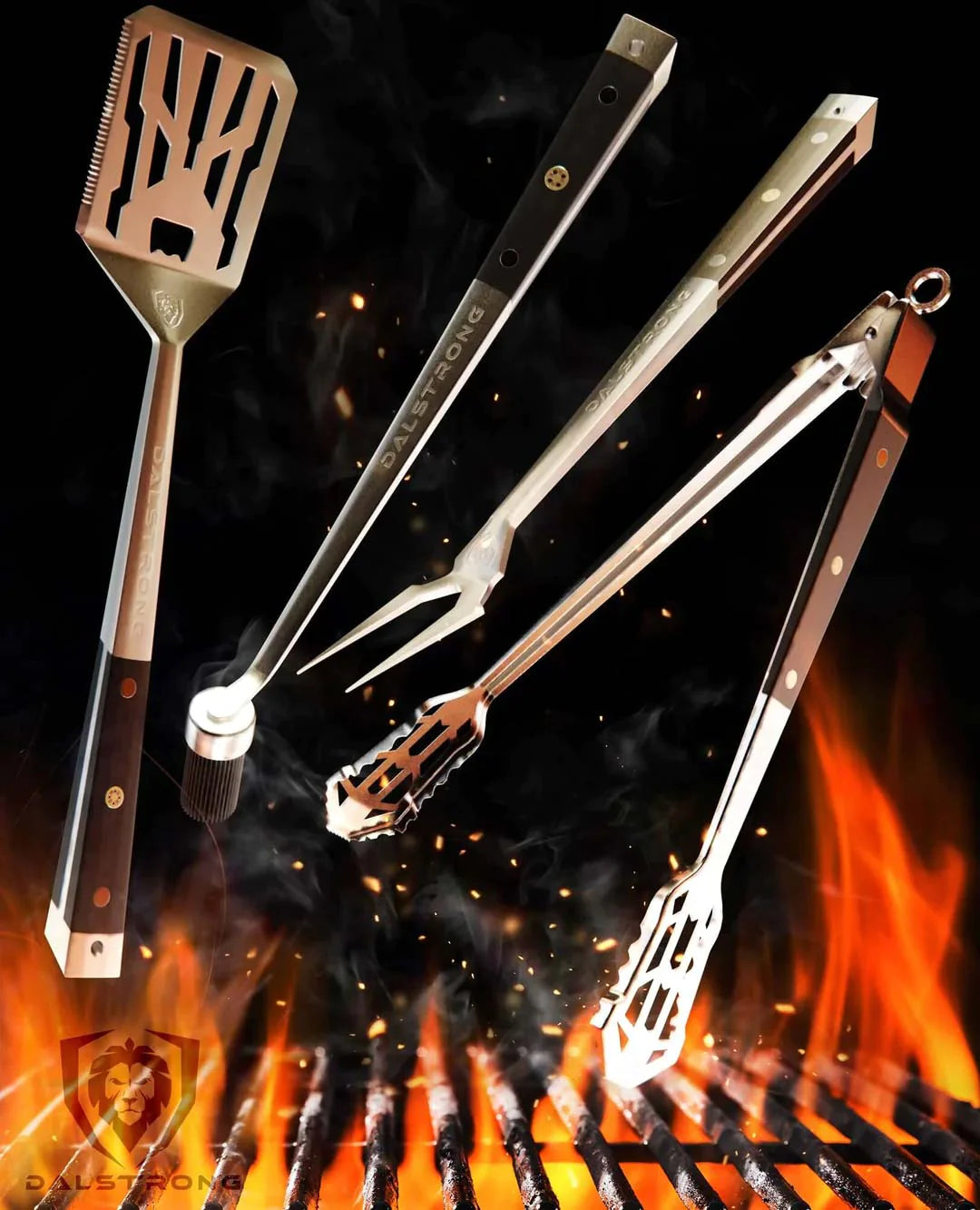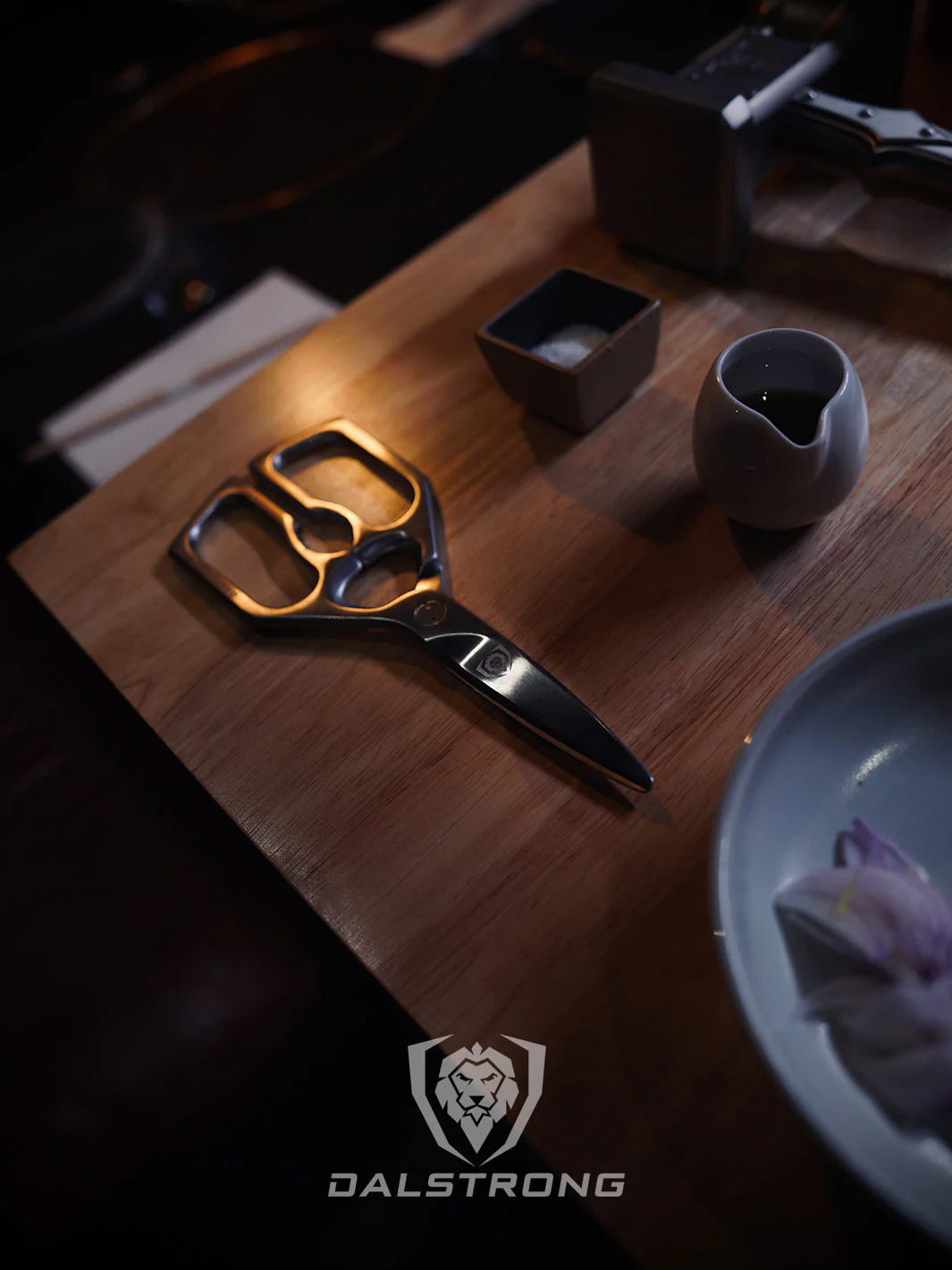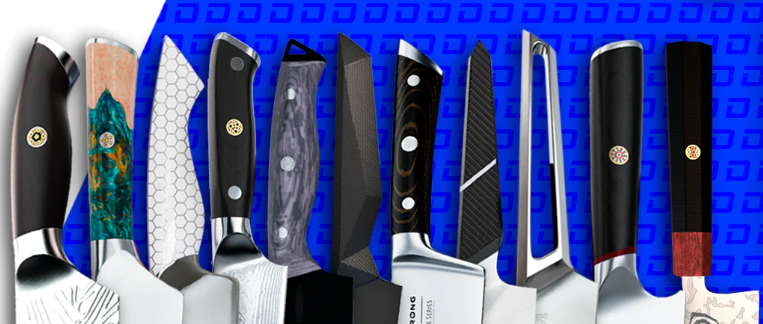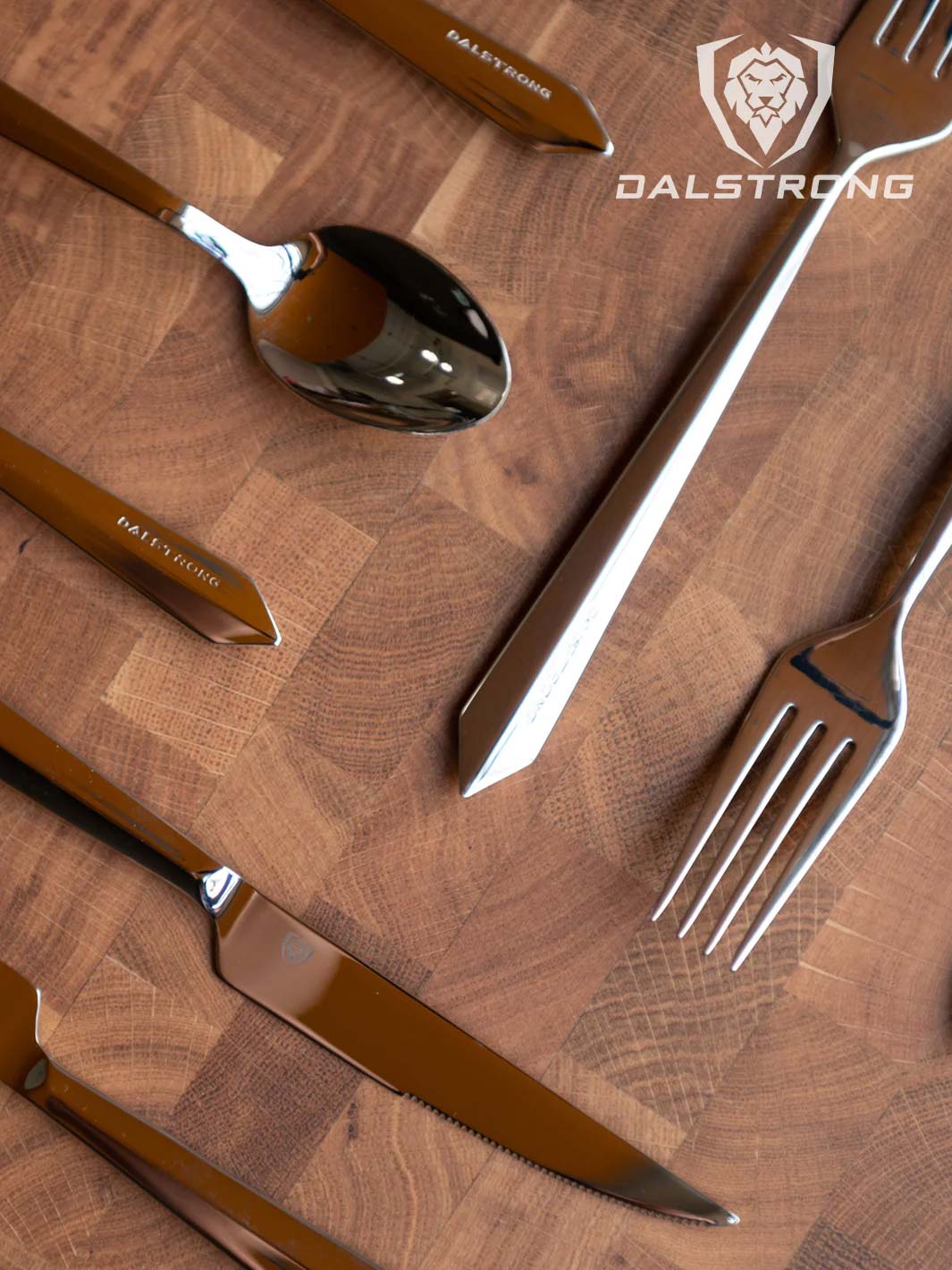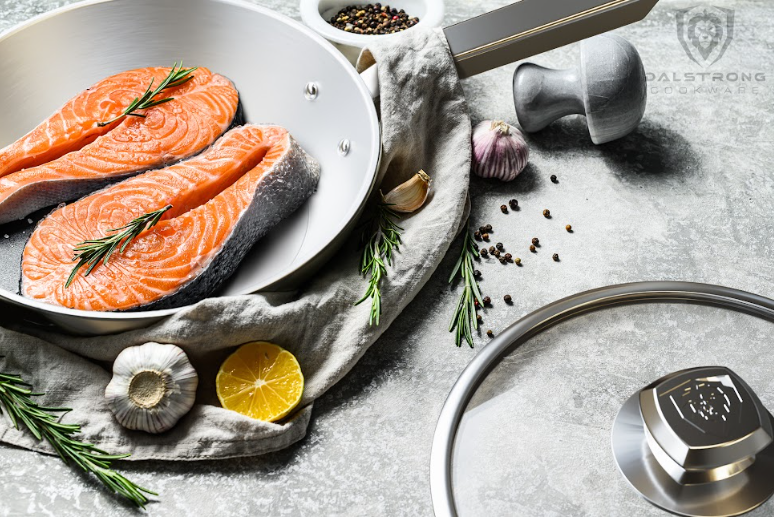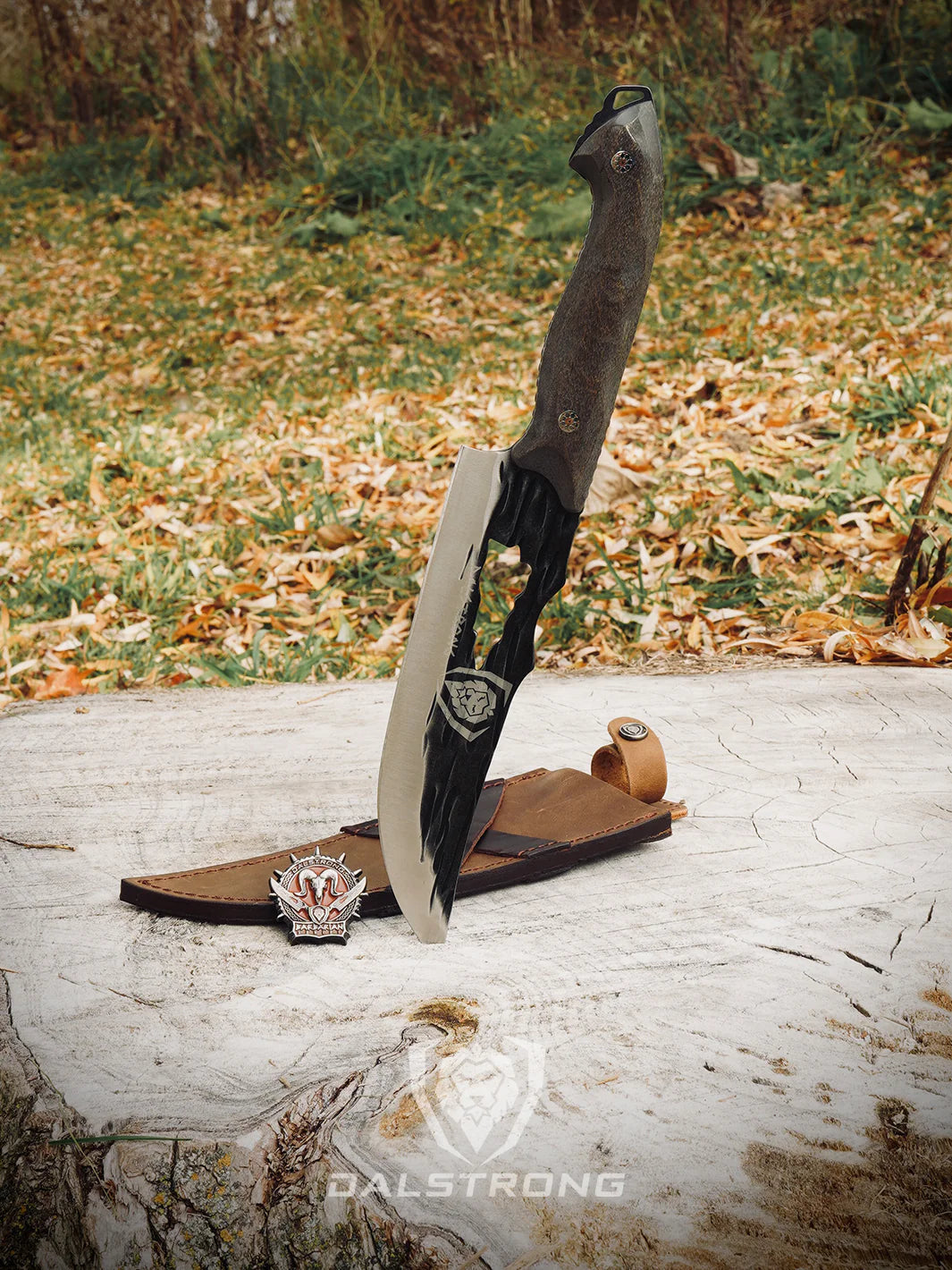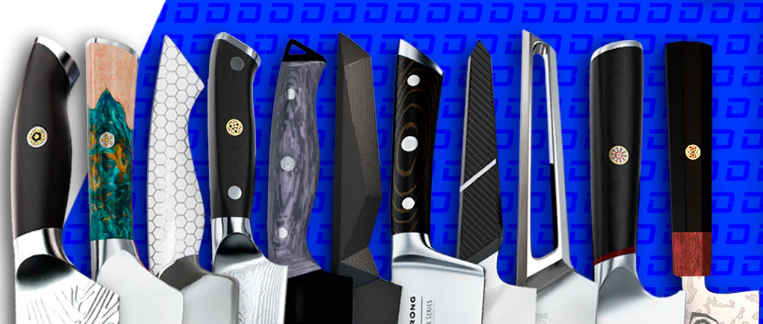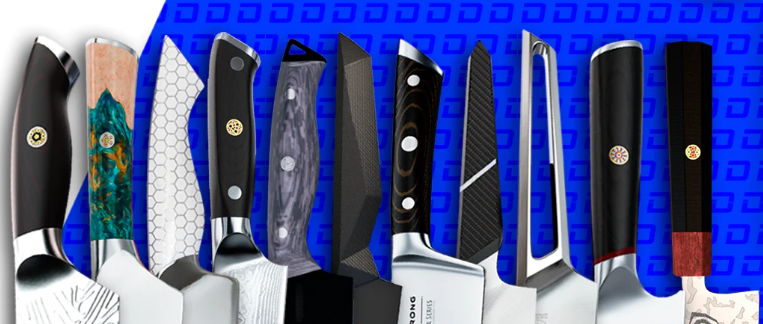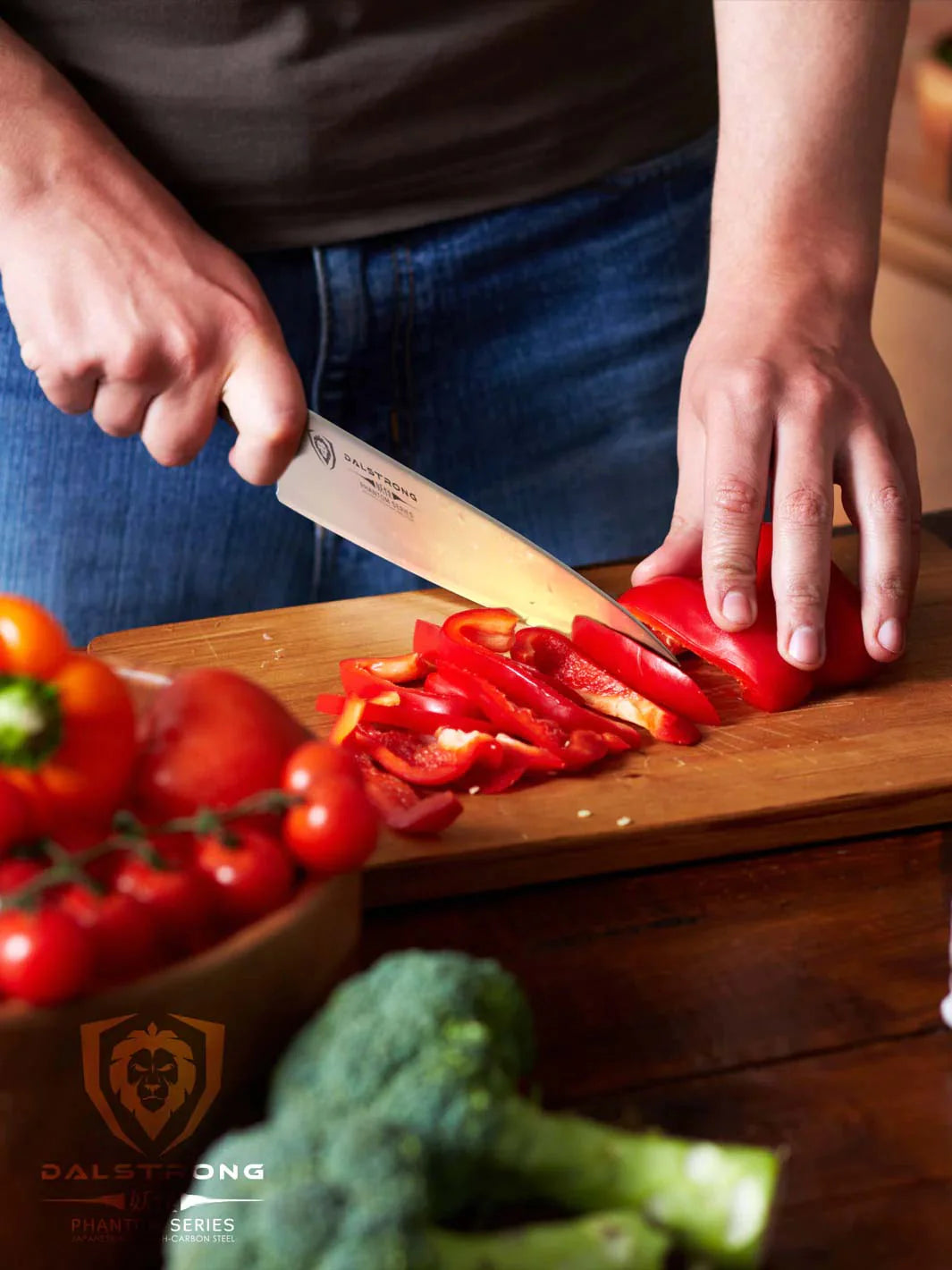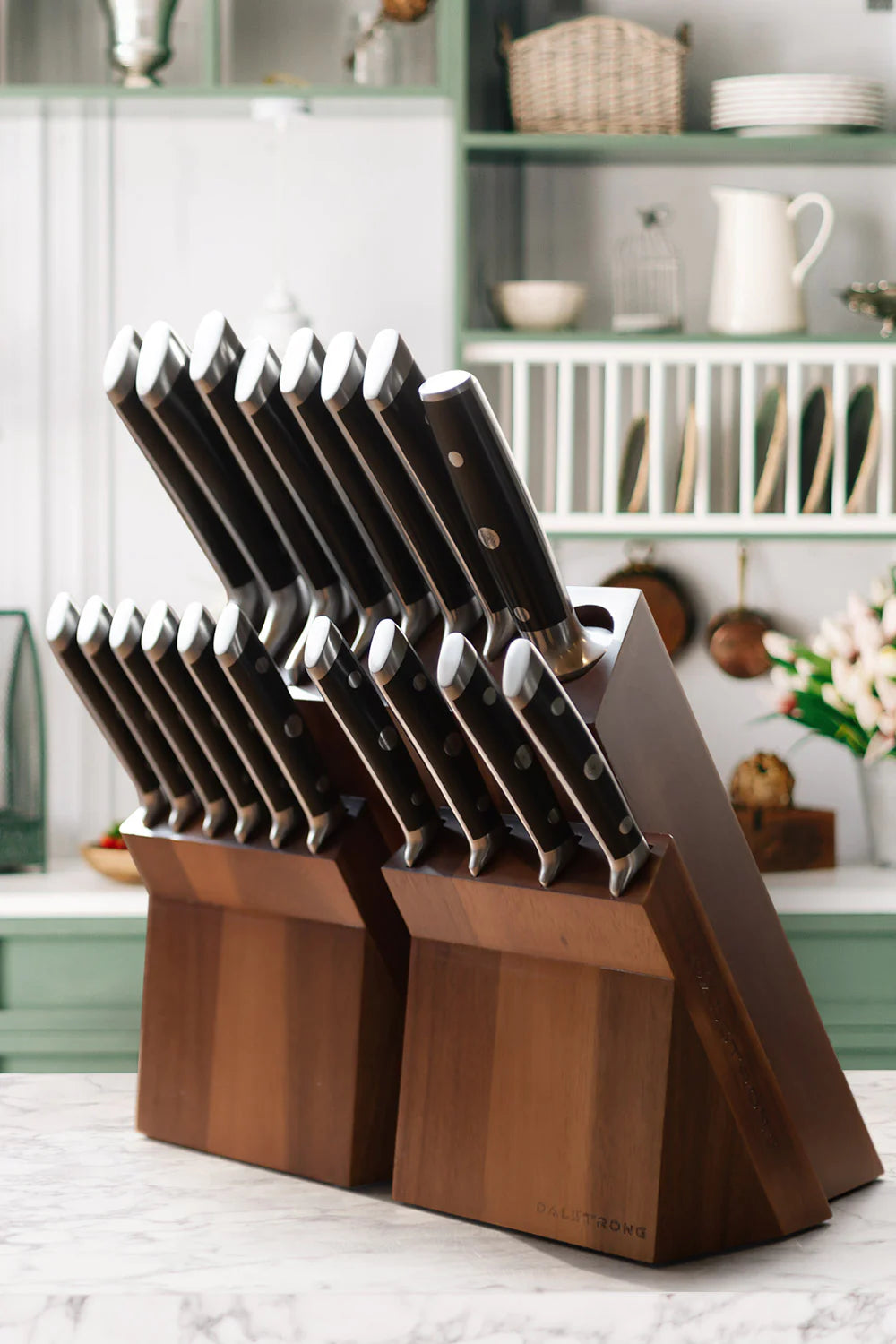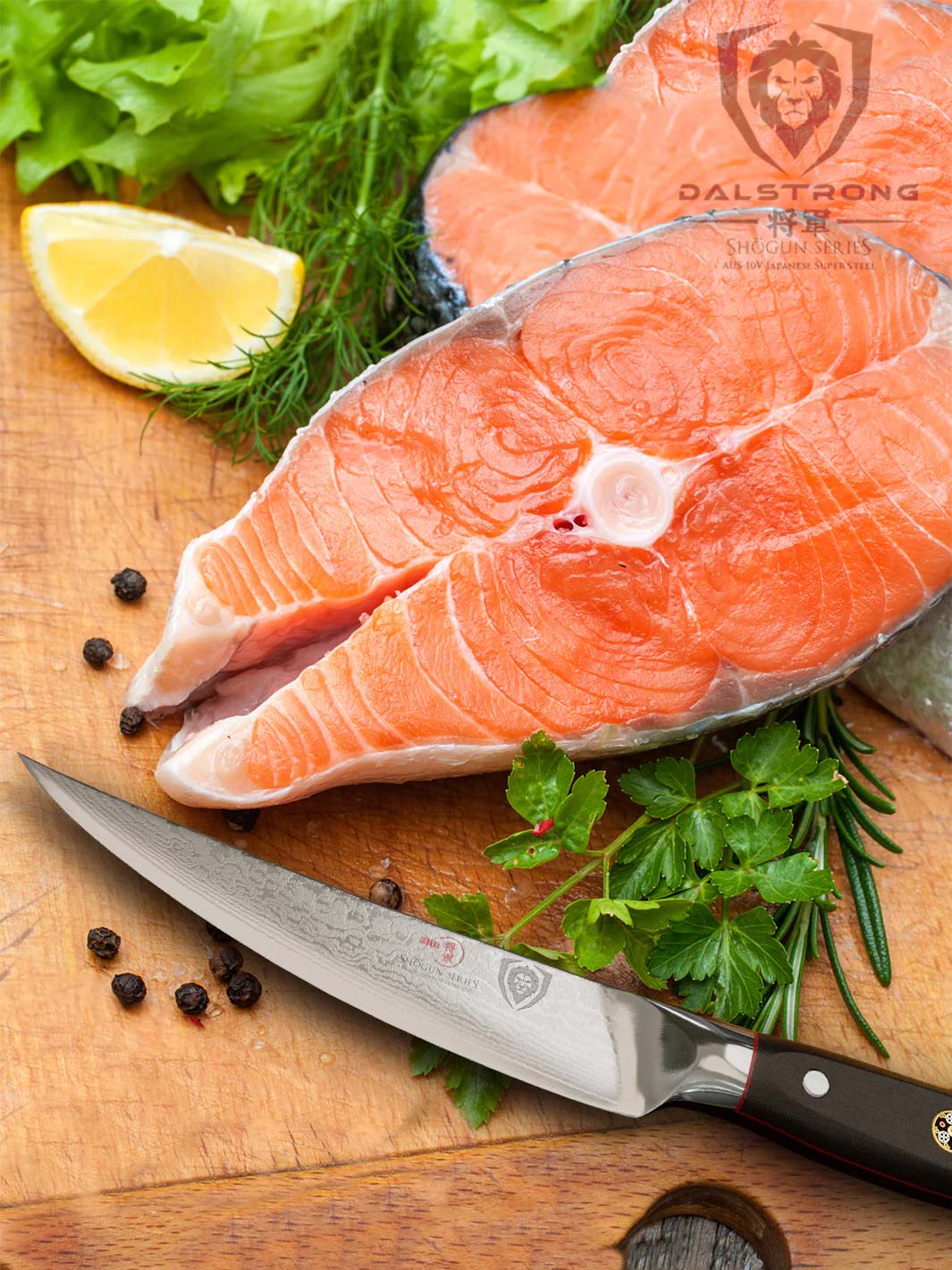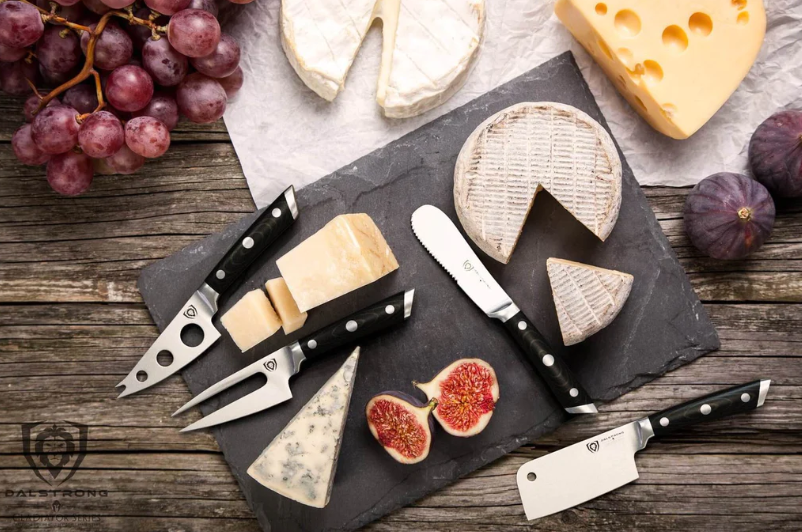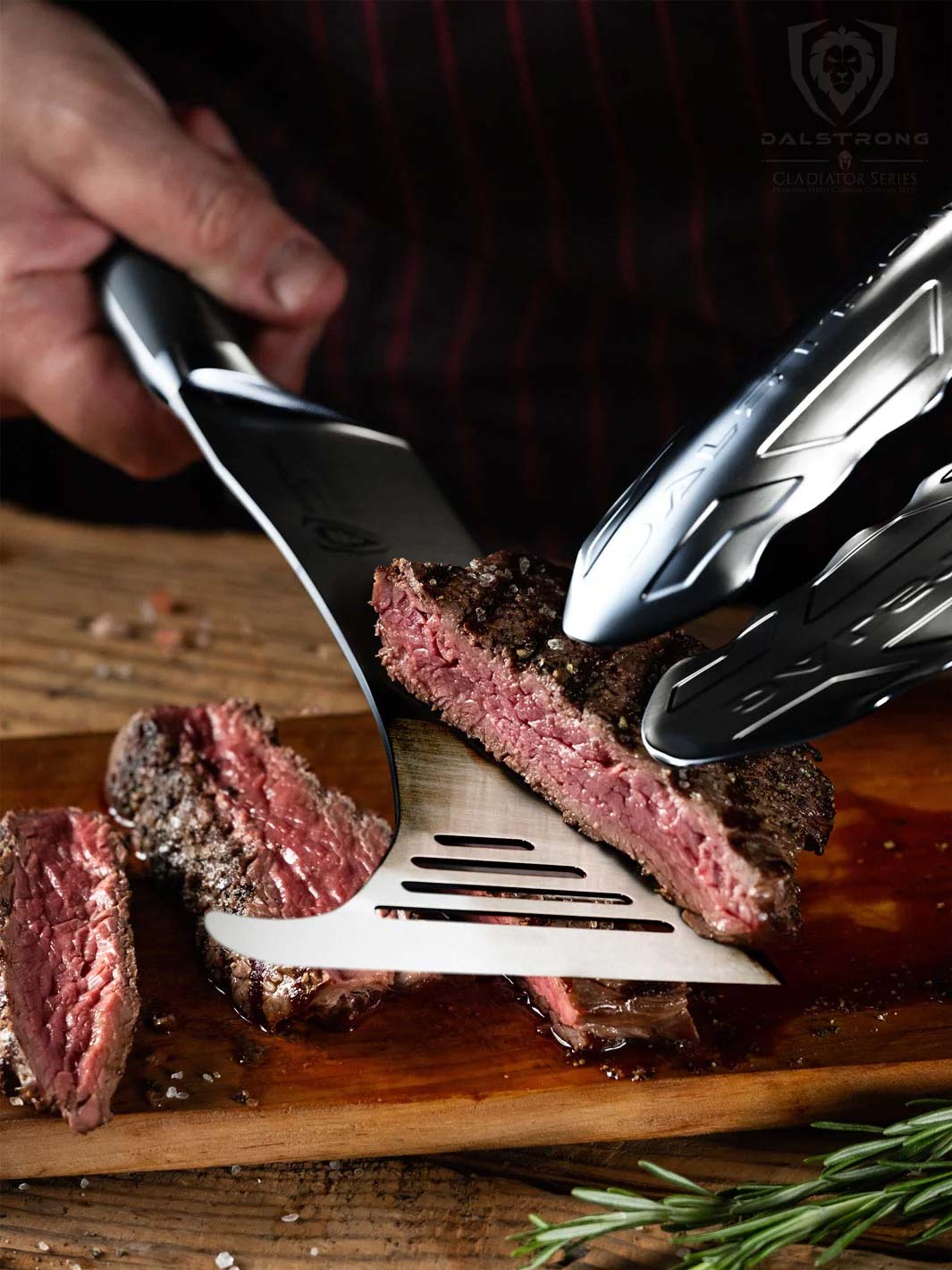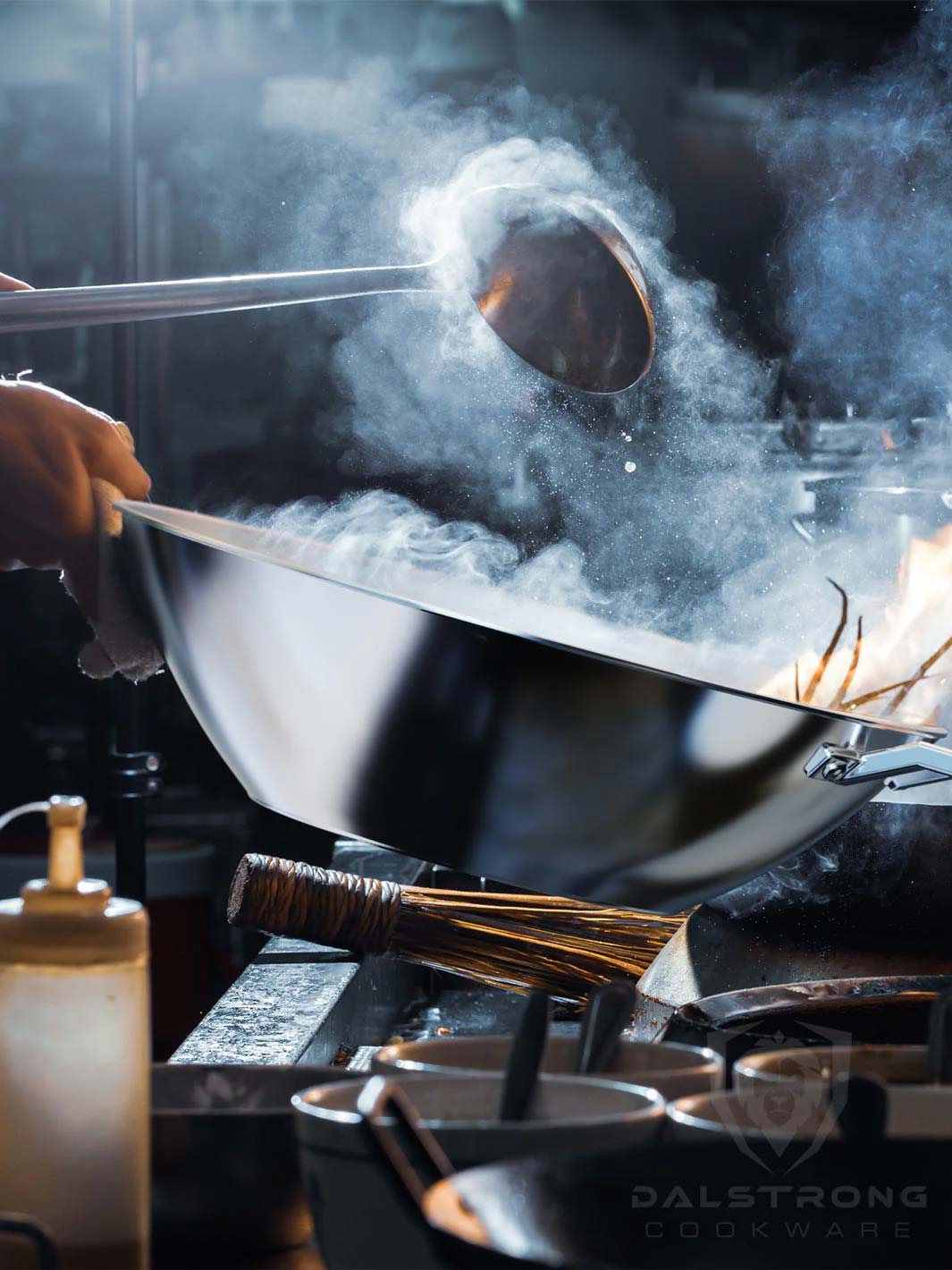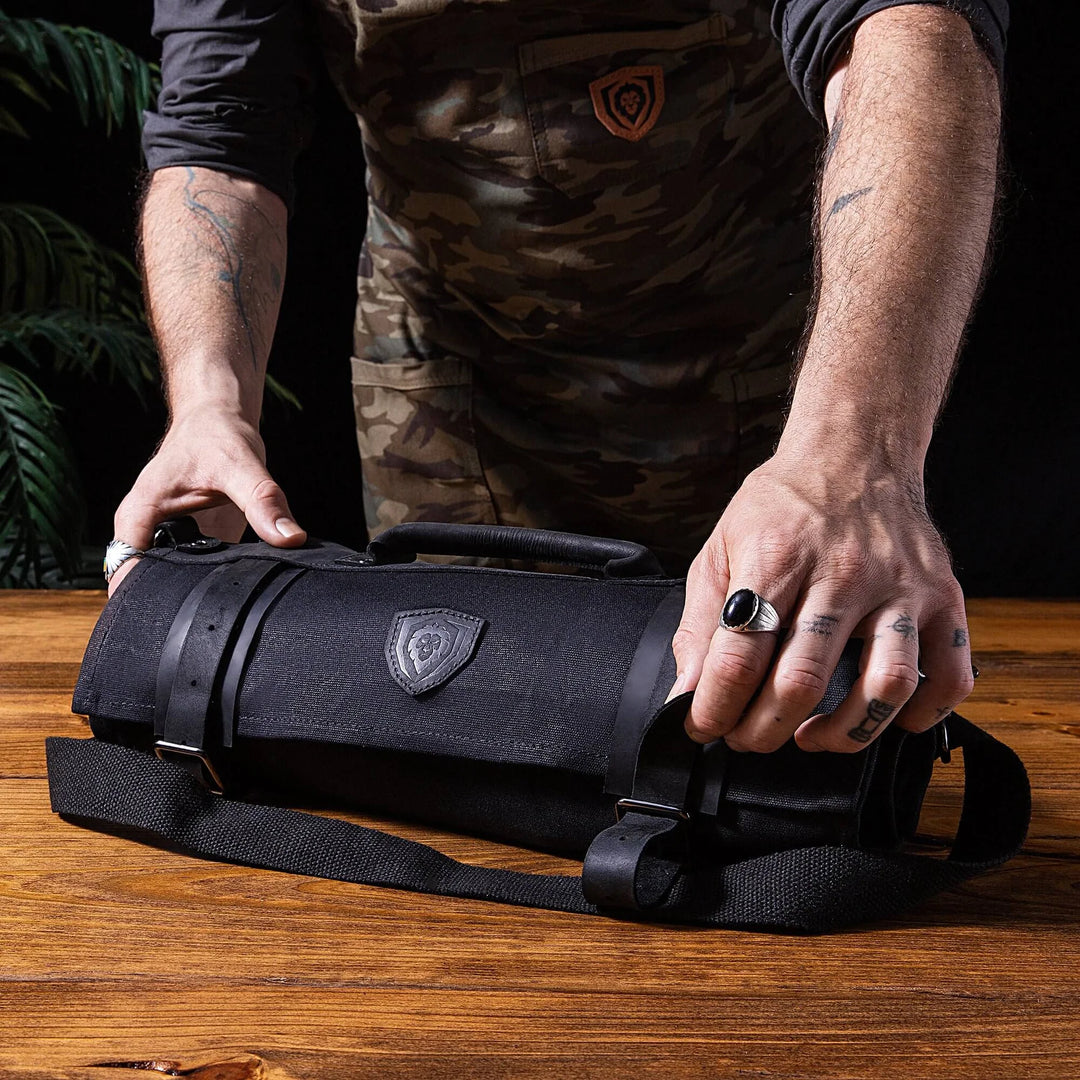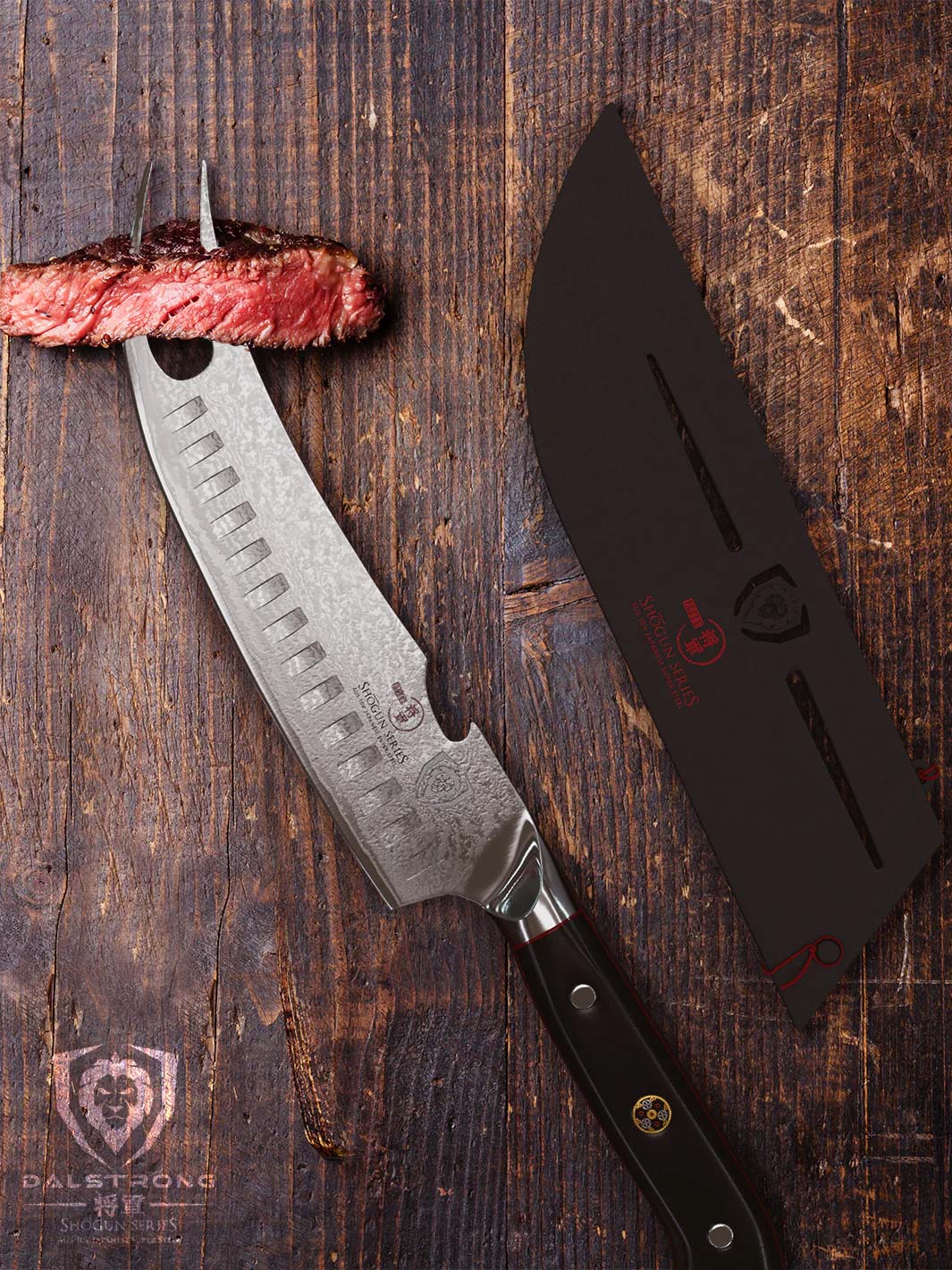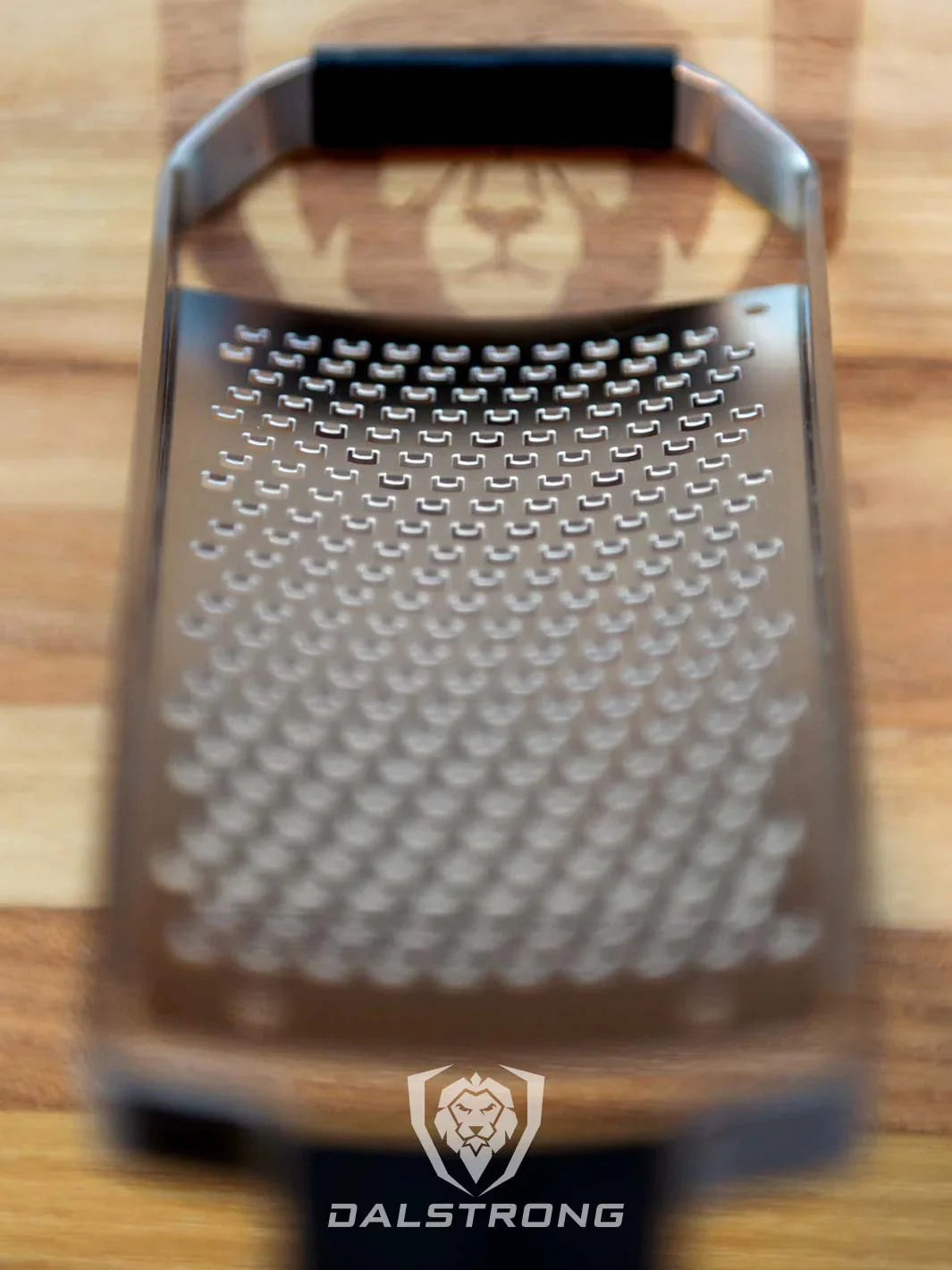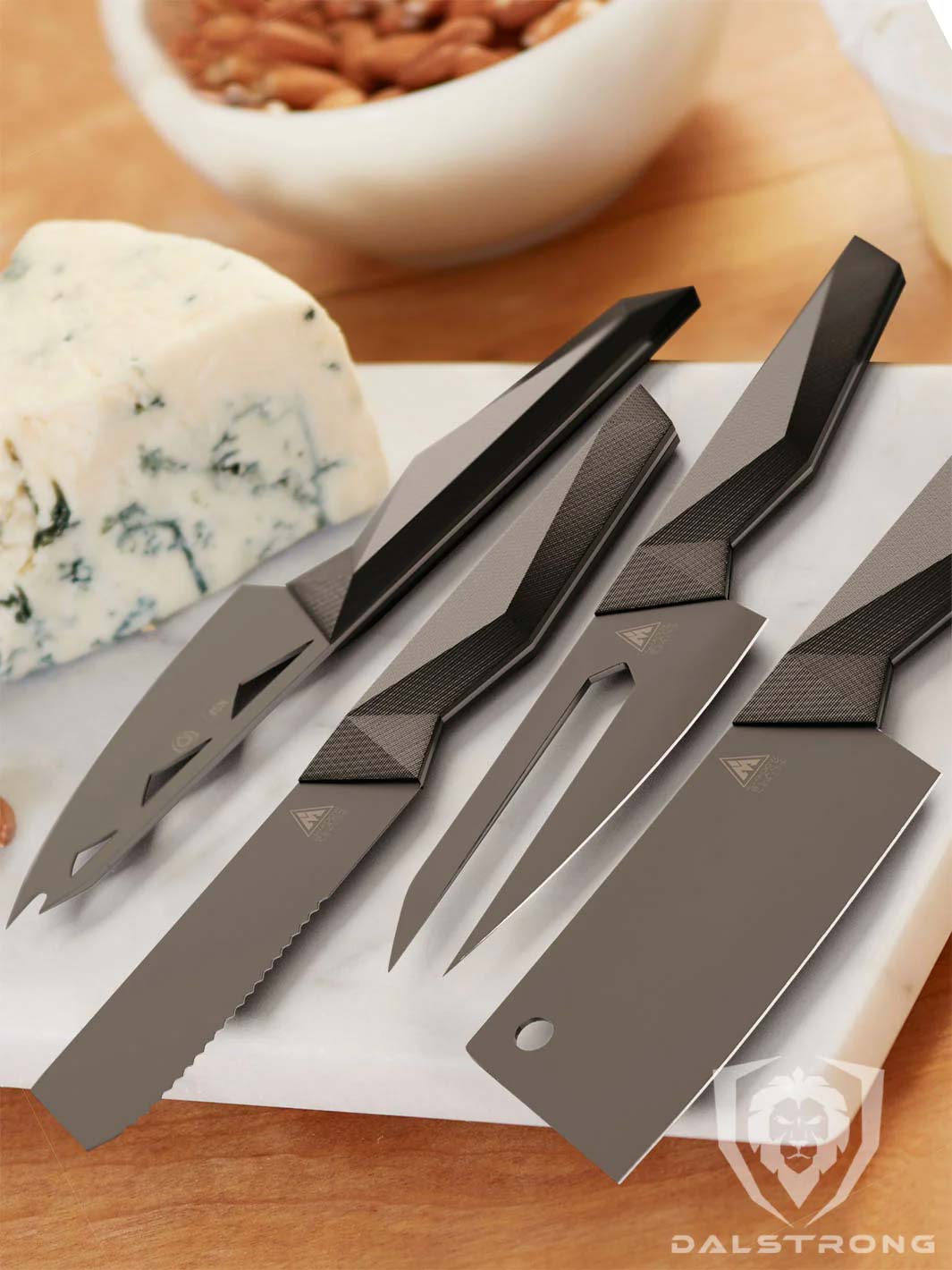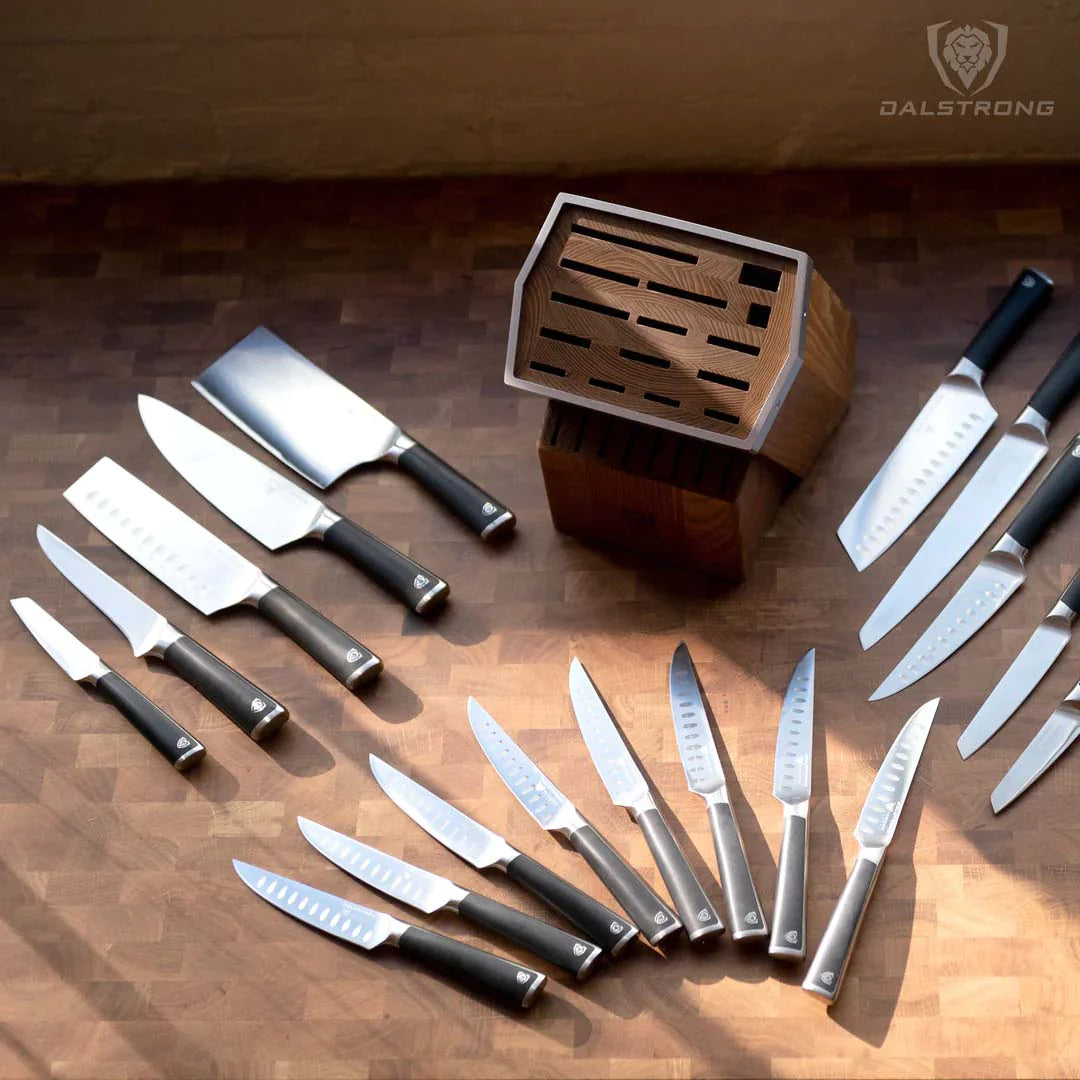Why Teak Cutting Boards Are Better Than Marble Boards
 Lionswood Teak Cutting Board Medium Size Dalstrong
Lionswood Teak Cutting Board Medium Size Dalstrong
If you’re a kitchen connoisseur, chances are, you’re a seasoned home cook. And every home cook and chef needs a cutting board that’s versatile, robust, and resilient. This blog will explore how teak cutting boards outshine marble boards and which Dalstrong cutting board is right for you. So, let’s get right into it.
1. What Is A Marble Cutting Board?

A marble cutting board is a kitchen accessory specifically designed for cutting and preparing food. It is made from solid marble, a type of natural stone known for its durability and elegant appearance. Marble cutting boards are available in various sizes, shapes, and colors, including the popular white marble option. They are commonly used in both home kitchens and professional culinary settings for their unique qualities and aesthetic appeal.
Build
Marble cutting boards provide a sturdy and stable surface for chopping, slicing, and dicing ingredients. The smooth and cool surface of the marble is ideal for working with dough, as it helps keep it at a lower temperature, making it easier to handle and prevent sticking. The hardness of marble also offers excellent resistance to knife marks and scratches, making it a durable choice for long-term use.
In addition to their functionality, marble cutting boards are known for their visual appeal. The natural variations in the veining and color patterns of marble create an elegant and luxurious look perfect as a cutting board serving tray or tray charcuterie board. The white marble cutting board, in particular, is highly sought after for its timeless and sophisticated appearance. Hence, the popularity of using marble pastry board to this day.
An Alternative To Marble Cutting Boards
When comparing teak as an alternative to marble cutting boards, it becomes evident that teak offers numerous advantages. Teak cutting boards, unlike marble cutting boards, are highly durable and resistant to moisture, warping, and bacterial growth. With their dense grain structure and natural oils, teak boards offer a much more long-lasting and hygienic surface for food preparation.
2. What Are Teak Boards?
Teak boards can be personalized with an engraving of family names which can add a sentimental touch to your culinary experience. Unlike marble cutting boards that can trap bacteria and food particles within their porous surface, teak boards offer superior hygiene and are easier to clean.
With their resistance to stains and their ability to develop a beautiful patina over time, teak cutting boards are now cherished pieces that tell a story of culinary creations and family traditions.
If you desire the elegance of marble but fret about functionality and hygiene, teak boards that mimic the aesthetics of white marble cutting boards provide the best of both worlds! Ultimately, teak is a superior alternative to marble cutting boards glass cutting boards, and abstract cutting boards as they offer ten folds durability, versatility, hygiene, and timeless beauty.
3. Why Teak Is Gaining Popularity Over Marble Cutting Boards
 Corner Cutting Board Natural Teak Wood Dalstrong
Corner Cutting Board Natural Teak Wood Dalstrong
Teak cutting boards have recently surpassed conventional marble cutting boards in terms of popularity. This change came for several reasons. Teak is known for its exceptional resilience and moisture resistance, which makes it highly resistant to warping, cracking, and splitting.
Teak cutting boards can withstand the demands of regular use without compromising their structural integrity, unlike marble, which is prone to chipping and scratching. Due to their durability due to their resilience, teak cutting boards are a more promising investment.
There are a few disadvantages of marble chopping boards that are also wise to note if you’re planning on purchasing a new cutting board.
Weight and Bulkiness
Marble cutting boards, including those made of white marble, are known for their weight and bulkiness. Their substantial nature can make them less convenient to handle and store, adding difficulty when moving the board around the kitchen or transferring ingredients.
Knife Dulling
Marble, being a dense and hard material, can quickly dull the sharpness of knives. The hardness of marble can accelerate blade blunting, necessitating more frequent sharpening to maintain optimal cutting performance. This can be particularly concerning for those who rely on consistently sharp knives for precise and efficient cutting.
Fragile and Damage Prone
Marble is a brittle material that is susceptible to chipping, cracking, or breaking if not handled with care. Accidental dropping or striking a knife on a marble cutting board can cause damage to the board itself or even result in nicks on the blade. Additionally, rough handling or impacts can lead to visible scratches on the marble surface, compromising its aesthetic appeal.
Porous Nature
Marble is inherently porous, which means it has microscopic pores that can absorb liquids and stains more easily compared to non-porous surfaces. This porosity can lead to discoloration, particularly when cutting deeply pigmented or acidic foods like beets, tomatoes, or citrus fruits. The absorption of liquids also increases the risk of bacterial growth if the board is not thoroughly cleaned and dried after each use, potentially compromising food safety.
High Maintenance
Marble cutting boards demand special care and maintenance to preserve their appearance and functionality. They need to be regularly sealed to reduce porosity and minimize staining. Additionally, acidic substances such as vinegar or citrus juices should be avoided as they can etch the surface of the marble, compromising its smoothness and shine.
Read about how to clean and disinfect a cutting board, here.
Limited Versatility
While marble cutting boards, including marble cheese boards and chopping boards, excel in cold food preparation tasks such as working with pastries or cheese, they are not suitable for hot food preparation or as a heat-resistant surface for placing hot pots or pans. The marble's ability to retain coolness can be advantageous for certain uses but limiting for others.
Cost
It's worth noting that marble cutting boards, particularly those made of white marble or specifically designed as serving boards, tend to be more expensive compared to other materials. This higher cost can make them less accessible for those on a budget.
4. Why Teak Is An Excellent Alternative to Marble Boards
 Teak Cutting Board Large Size Horizontal Grain Dalstrong
Teak Cutting Board Large Size Horizontal Grain Dalstrong
Teak cutting boards require less maintenance than marble, which needs careful handling and specialized cleaning to keep its appearance. Teak is resistant to stains and odors due to its natural oils and dense grain, making cleaning easier.
With regular oiling, your teak cutting board will remain in top condition for many years because it will help nourish and protect the wood. Teak cutting boards offer a warm and welcoming aesthetic that improves the visual appeal of any kitchen, in contrast to marble cutting boards' cool and elegant aesthetic.
Teak wood's deep hues and distinctive grain patterns provide an aesthetically pleasing backdrop for food preparation, enhancing the ambiance in the kitchen as a whole which is every chef’s dream.
Versatility
Serving trays have grown to be a crucial component of food presentation, and teak excels in this area as well. Teak becomes a flexible option for serving a variety of delicious cheeses and accompaniments because it can function as a stunning cheese board. Thanks to its antibacterial qualities, which it shares with marble, your cheese selections will be served on a clean surface.
Cutting boards are a necessity for daily life, and teak wood's durability is evident in this regard. Despite the allure of their striking aesthetics, marble chopping boards frequently lack the toughness needed for heavy-duty chopping and slicing.
Quality and Durability
Teak cutting boards can outshine even the most robust wood cutting boards in terms of exceptional resilience as it is very resistant to rot and decay because of their tight grain and natural oils.
White marble cutting boards may seem elegant, but they can trap bacteria, germs, and food particles within their porous surface. While engraving family names on a white marble cutting board can add a personal touch, it also creates small crevices and grooves where bacteria can accumulate.
Marble is a naturally porous material and has pores and fissures that can trap bacteria, germs, and food particles within its surface. While engraving family names on marble cutting boards may seem appealing, it creates additional crevices and grooves where these contaminants can accumulate. Over time, the bacteria can compromise the cleanliness of the cutting board and potentially contaminate the food being prepared.
Engraving Family Names
The engraved areas on marble cutting boards can be challenging to clean thoroughly due to their intricate designs and the presence of tiny grooves. Even with regular cleaning and sanitization, it can be difficult to ensure that all bacteria and food residues are effectively removed from these engraved areas. This can increase the risk of cross-contamination and foodborne illnesses.
Teak wood offers a multitude of advantages over abstract marble boards. Teak wood is renowned for its remarkable durability and resilience. It possesses natural oils and a dense grain structure that make it resistant to moisture, warping, and bacterial growth.
Abstract marble boards, on the other hand, can be fragile and prone to chipping or cracking, compromising their longevity and practicality. Teak wood's ability to withstand the rigors of daily use makes it a more reliable and long-lasting choice for charcuterie boards.
5. Teak Wood Boards And Their Aesthetic Value
Elegance
Teak boards effortlessly exude timeless elegance with their warm, golden-brown hues and enchanting grain patterns. The organic beauty of teak wood complements various kitchen aesthetics, from rustic farmhouses to modern minimalism. Teak charcuterie boards offer a versatile and captivating option for displaying your favorite cured meats, cheeses, fruits, and nuts.
The natural beauty of teak wood is enhanced by its warm, golden-brown tones and unique grain patterns. These boards provide an elegant backdrop for your culinary creations, transforming a simple spread into a visually stunning masterpiece.
Whether you're showcasing a black marble cheese platter or a Carrara white pastry board, teak boards provide a stunning backdrop that enhances the overall visual appeal.
Designs
For those captivated by the allure of marble, teak boards offer a remarkable alternative. With their versatility and craftsmanship, teak boards can feature marble-inspired designs that mimic the elegance of white or black marble.
These designs allow you to enjoy the aesthetic charm of marble while benefiting from the durability and functionality of teak wood.
Material
Teak boards are a testament to exquisite craftsmanship, with careful attention to detail evident in their finishes. Some teak boards boast brass inlays, which add a touch of sophistication and create a striking contrast against the warm wood tones.
6. Recommended Dalstrong Cutting Boards
1. Teak Cutting Board Medium Size Dalstrong
The Teak cutting board is a versatile and luxurious addition to your kitchen. Crafted from sustainably sourced Tropical Teak wood, this all-purpose chopping, slicing, and serving board features satin-finished steel handles for a stylish touch. With its unique checkered construction, the board offers a slip-resistant surface that absorbs impact, keeping your knives sharper for longer.
Pros:
- Made from sustainably sourced Tropical Teak wood, this cutting board is known for its impressive moisture resistance and durability, thanks to its natural oils.
- The tight wood grain of the end-grain construction ensures a long-lasting and hygienic cutting surface.
- The board's two steel handles make it convenient to use as a serving board, perfect for presenting roasts, charcuterie, bread, and cheeses.
- The lasered measurement lines on the bottom of the board make it incredibly easy to prep food.
Cons:
- This medium size cutting board may not be ideal for larger food prep tasks.
- This teak board is a tad bit heavier than other chopping boards, but rest assured, it will absorb impact without taking on damage.
2. Teak Cutting Board Dalstrong
This best-selling Dalstrong teak board is the perfect addition for compact kitchens that need a little more counter space for food prep. The hand-crafted end-grain wood is infused with moisturizing oils, making it naturally resistant to water, bacteria, and staining.
Pros:
- The colossal size of the cutting board provides plenty of space for large food preparation tasks and easily expands your cutting surface.
- The end-grain design adds durability and resilience to the board, increasing its durability.
- The checkered construction of the end-grain surface creates a slip-resistant surface that absorbs impact, making it ideal for keeping your Dalstrong knives sharp and maintaining precise cutting performance.
- The board is designed with two steel handles, making it easy to carry and serve. It is perfect for beautifully presenting a variety of culinary delights, including roasts, charcuterie, bread, and cheeses.
Cons:
- The size and weight of the cutting board may be too large and heavy for some users or kitchens with limited counter space.
- This chopping board may not be easily portable due to its size.
3. Large Size Horizontal Grain Dalstrong

This teak cutting board is designed to elevate your kitchen and enhance your culinary craft. This board is crafted from 100% sustainably sourced Tropical Teak wood which showcases its natural beauty that only gets better with age.
Pros:
- The chopping board is perfectly sized to handle larger everyday chopping and cutting tasks.
- The tight wood grain ensures a long-lasting hygienic cutting surface.
- The long juice groove helps keep messy prep on the board and off your countertop.
Cons:
- The large size of this cutting board may be too large for home cooks and chefs with compact kitchens.
- This board is a little heavier than other cutting boards, but this is a mark for its durability and robustness.
4. Infinity Series Medium Size Obsidian Black
Made with premium wood-fiber engineering, this cutting board is sleek, sturdy, and finished in elegant Obsidian Black, adding sophistication to your culinary adventures. The eco-friendly wood-fiber composite construction sets it apart from other cutting boards.
Pros:
- The sleek and sturdy design adds an element of edge to every kitchen.
- Not only is this board highly functional and practical, but it’s also easy to clean and maintain, too.
- The cutting board features non-slip silicone feet, keeping it firmly grounded to your kitchen countertop.
- This handle allows you to carry fruits, cheeses, and other snacks with ease.
Cons:
- Placing hot pots or pans directly on the board can cause damage.
- This is a medium-sized board, which could be a little smaller for folks looking for something more colossal.
5. Call of Duty Edition EXCLUSIVE COLLECTOR BOARD Dalstrong
This cutting board is made from premium European Beech wood, known for its closed-grained hardwood properties. It offers exceptional scratch and impact resistance while being gentle on kitchen knives, preserving their sharpness and longevity.
Pros:
- This cutting board is easy to transport and is ideal for small kitchens and chefs on the move.
- The European Beech wood used in this cutting board is naturally food-safe and highly effective at resisting bacteria, moisture, and stains.
- This board is a perfect addition for Call of Duty fans or anyone looking for a cutting board with a grunge look.
Cons:
- This chopping board is not dishwasher-safe, so it requires extra care and attention when cleaning.
- The size of the board may not be perfect for folks looking for something larger and grand in size.
7. Frequently Asked Questions
Is marble good for a cutting board?
Marble can be visually quite appealing to the eyes, but unfortunately, it doesn’t make a good cutting board due to its slippery and crack-resistant surface.
Are marble cutting boards heat-resistant?
Marble cutting boards can crack under pressure, so placing hot pots and pans on them is not a great idea.
Which chopping board is most hygienic?
Teak chopping boards are the most hygienic as they’re infused with natural oils that repel bacteria, germs, and moisture.
SHOP DALSTRONG CUTTING BOARDS NOW!
Written by Ananya Tiwari





















































































































